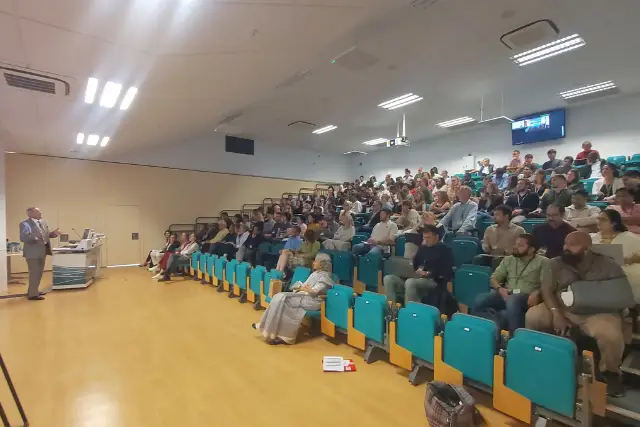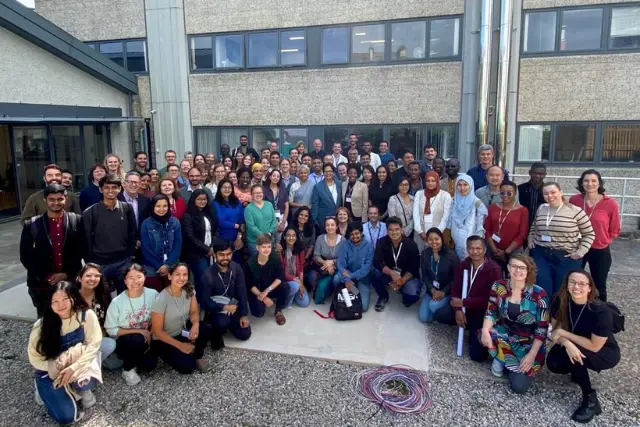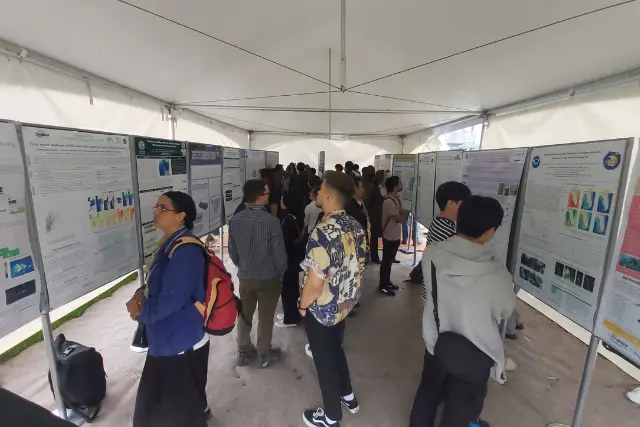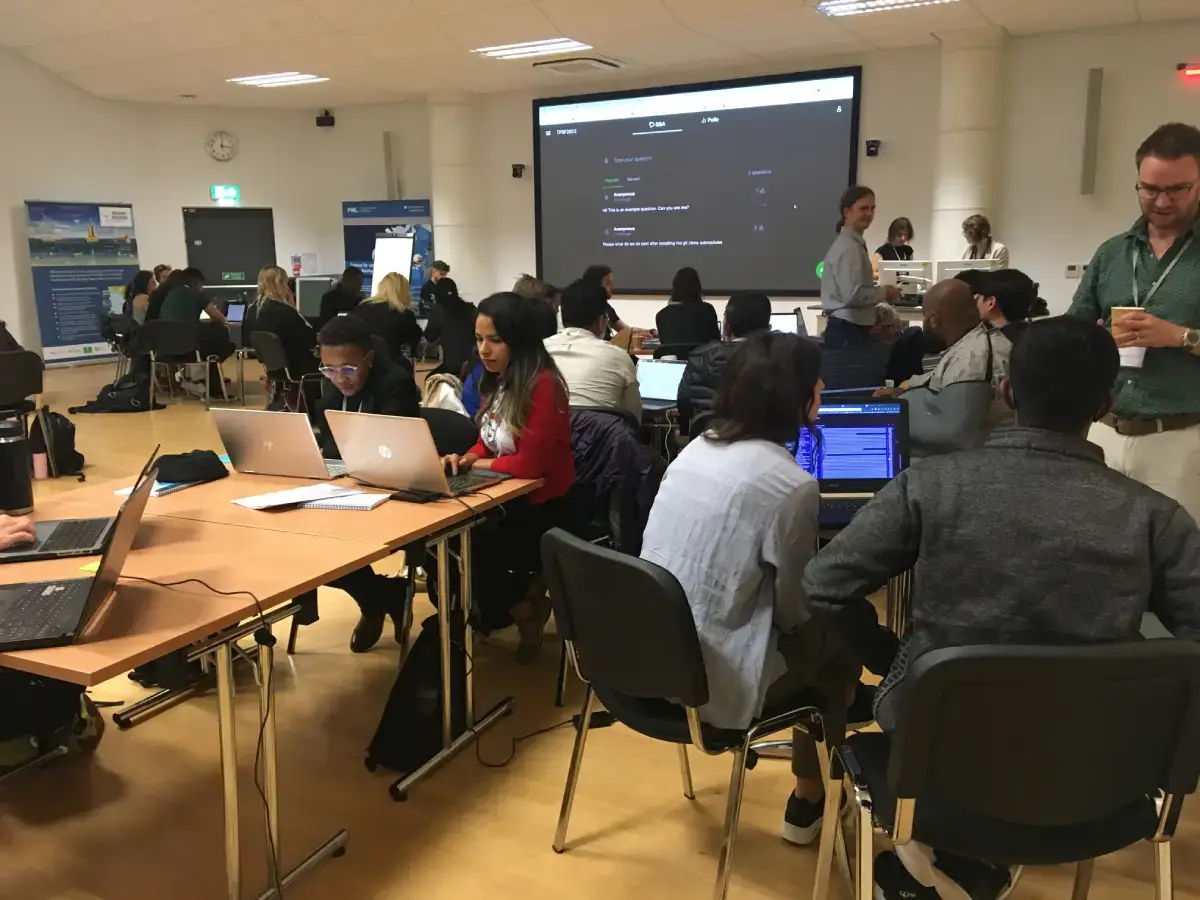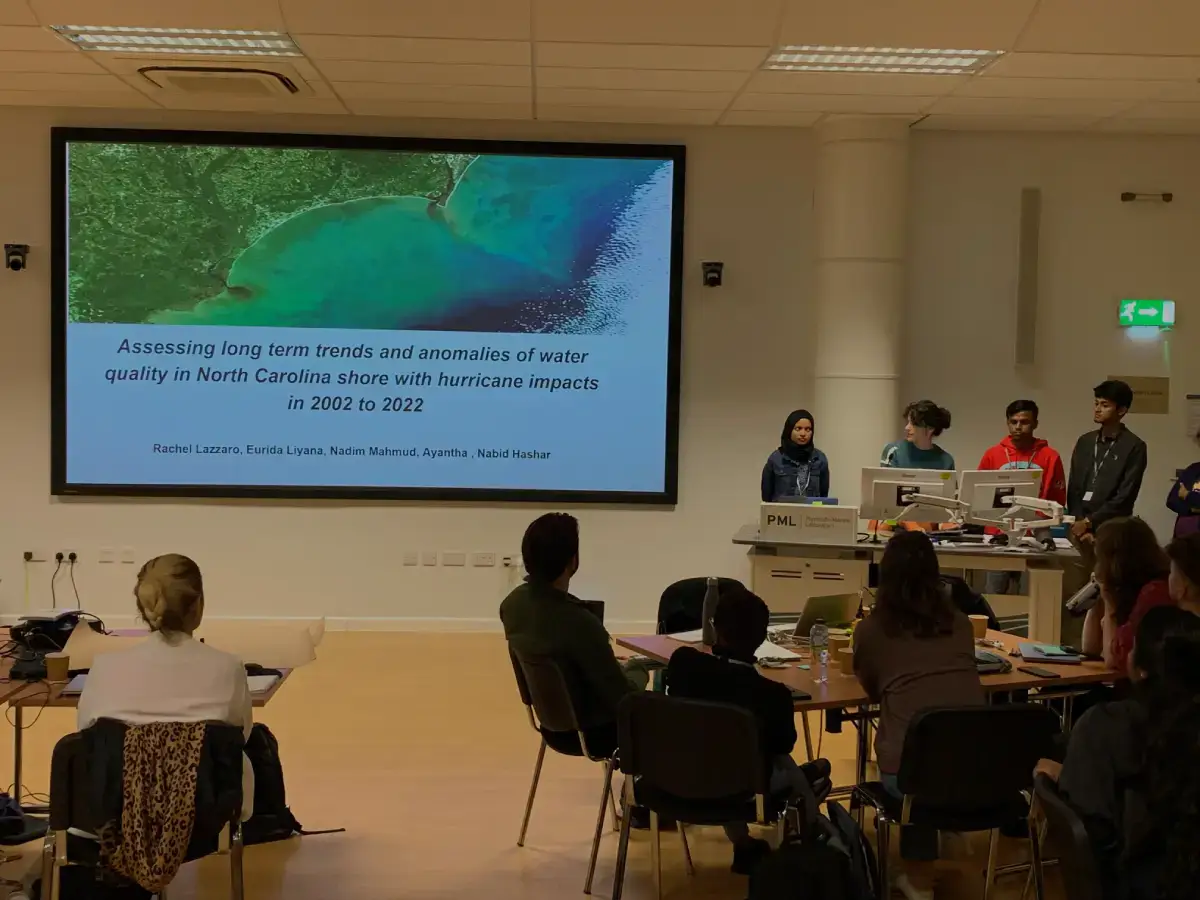Trevor Symposium 2023 has concluded
Trevor Platt Science Foundation
Inaugural Science Symposium
August 7 – 11, 2023
Plymouth Marine Laboratory (PML), UK
The Trends, Reflections, Evolution, and Visions in Ocean Research (TREVOR) Symposium was organised in conjunction with a multi-faceted training course.
Registered Participants
Symposium Programme
Online Training
In-Person Training
Sponsors
A celebration of the scientific life of Trevor Platt
Trends, Reflections, Evolution, and Visions in Ocean Research
Background
The idea of conducting an international symposium in honour of Trevor Platt’s scientific achievements was put forth by Prof. Osvaldo Ulloa, TPSF member, and was presented to the members at the TPSF annual meeting on 12 August 2022 by Dr. Shubha Platt. All members supported it. A series of discussions followed, and Plymouth Marine Laboratory (PML), UK, offered to host the event. It was subsequently decided that the symposium be preceded by a training programme for early career researchers on recent advances in satellite remote sensing and possibly other subject areas, in honour of Prof. Platt’s long-term commitment to capacity building. Many other like-minded organisations, with some of which Trevor Platt had had close associations, were approached for support, and on receiving warm and positive responses, the decision was made to take the initiative forward as a joint, collaborative effort.
Objectives
- To provide a forum for exchange of scientific ideas and findings among TPSF members and the broader scientific community on the many scientific research areas on which Trevor Platt left his imprint.
- To carry forward Trevor’s legacy in aquatic research and international collaboration.
- To promote capacity building and education in ocean sciences.
- To establish international scientific networks to promote collaborative research in aquatic sciences.
Symposium 2023
Organising And Planning Committee
The committee included former students and colleagues of Trevor Platt, and representatives of co-sponsors. The organisation and planning of the symposium and the associated training activities was very much an inter-organisational collaborative effort.
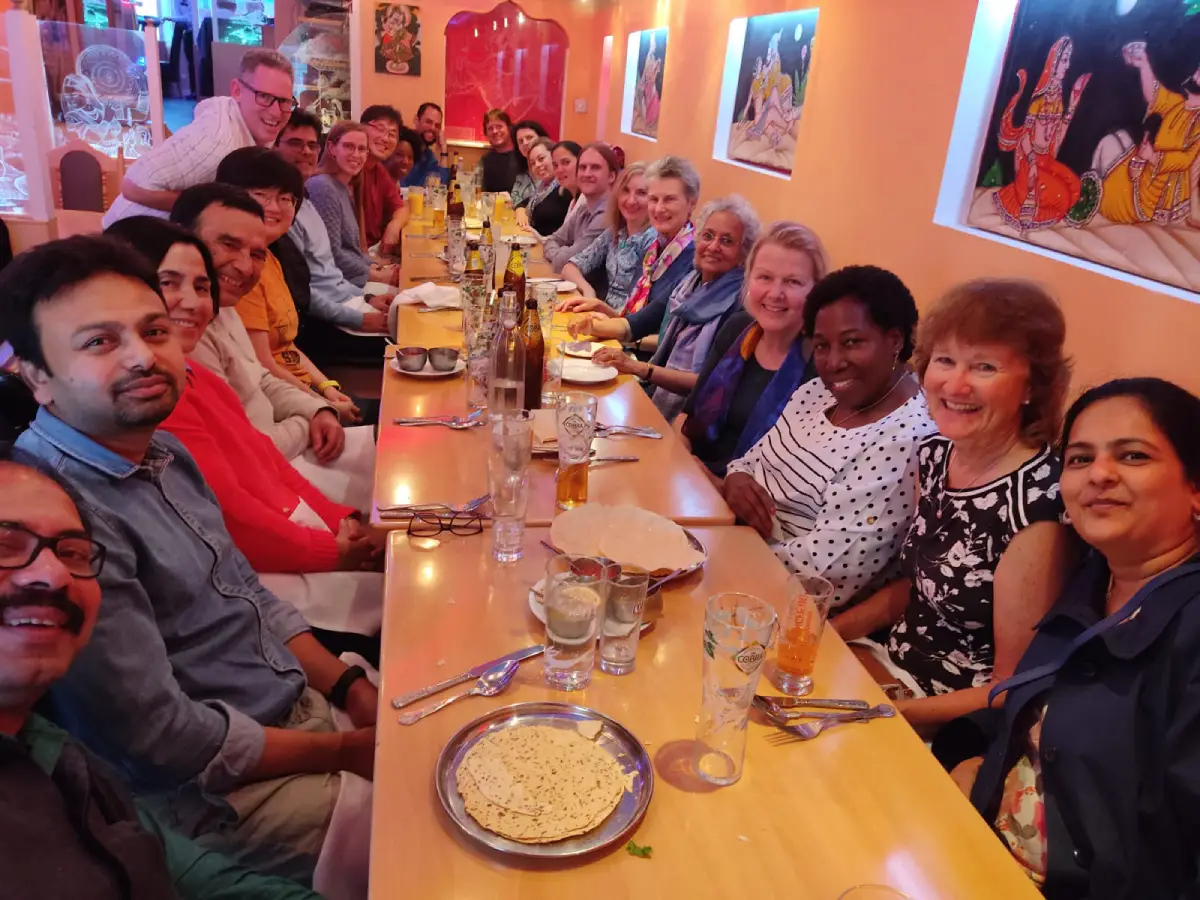
Organising committee of the symposium at pre-symposium dinner
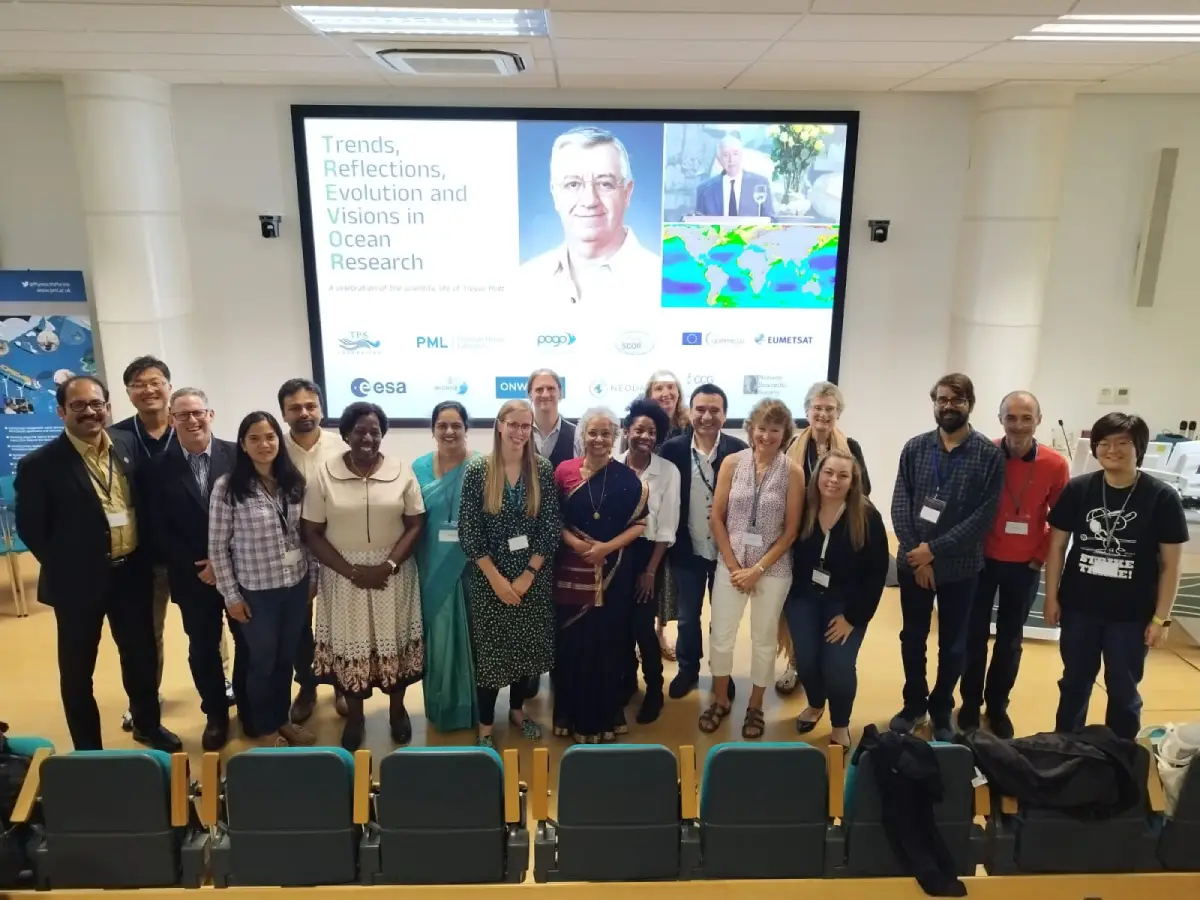
Organising committee at the symposium
- Anas Abdulaziz (NIO, India)
- Arvind Singh – Physical Research Laboratory, India
- Bob Brewin – University of Exeter (UoE), UK
- Frédéric Mélin – Europan Commission Joint Research Centre (JRC), Italy
- Gemma Kulk – Plymouth Marine Laboratory (PML), UK
- Grinson George – Central Marine Fisheries Research Institute (ICAR-CMFRI), Kochi, India
- Hayley Evers-King – EUMETSAT, Germany
- Heather Bouman – University of Oxford, UK
- Lilian Krug – Partnership for Observation of the Global Ocean (POGO), Portugal
- Margareth Kyewalyanga – University of Dar Es Salaam, Institute of Marine Sciences, Tanzania
- Milton Kampel – National Institute for Space Research (INPE), Brazil
- Nandini Menon – Nansen Environmental Research Centre (NERC), India
- Osvaldo Ulloa – University of Concepcion (UdeC), Chile
- Raisha Lovindeer – International Ocean Colour Coordinating Group (IOCCG), Canada
- Renato Quiñones – University of Concepcion (UdeC), Chile
- Samy Djavidnia – European Maritime Safety Agency, Portugal
- Sanjiba Kumar Baliarsingh – Indian National Centre for Ocean Information Services (INCOIS), India
- Seunghyun Son – National Oceanic and Atmospheric Administration (NOAA), USA
- Shovonlal Roy – University of Reading, UK
- Shubha Sathyendranath – Plymouth Marine Laboratory (PML), UK
- Sophie Seeyave – Partnership for Observation of the Global Ocean (POGO), UK
- Thomas Jackson – Plymouth Marine Laboratory (PML), UK
- Venetia Stuart – International Ocean Colour Coordinating Group (IOCCG), Canada
- Vivian Lutz – Instituto Nacional De Investigación Y Desarrollo Pesquero (INIDEP), Argentina
- Xuerong Sun – University of Exeter (UoE), UK
Symposium 2023
Sponsors
Other international organisations and funding agencies with shared interests were approached for financial support and co-sponsorship. Practically all the organisations that were approached responded positively. A total of 73 participants (including 27 trainees) were supported by the different sponsors
symposium 2023
Organisation
Call for Abstracts and Selection of Participants
The scientific domains in which Trevor Platt had left his mark were identified and grouped into 11 themes to define the scope of the symposium, as follows:
- Primary production, physiology and ecology of marine phytoplankton
- Thermodynamics of aquatic ecosystems
- Physical and biological interactions
- Marine optics
- Size structure of marine communities
- Remote sensing of ocean colour
- Ocean carbon cycle and climate change
- Water quality and human health
- Time series of ocean observations and their analyses
- Ecological approaches to fisheries management
- International collaboration and capacity building
Abstracts were invited from students and researchers on these themes. Students and early career researchers were given the opportunity to apply for the online and hands on training activities preceding the symposium. All participants who requested travel support were required to submit an abstract for the symposium. Experts on each theme screened the abstracts and assigned the abstracts to poster and oral presentations.
A digital book of abstracts was prepared including all the abstracts accepted for oral and poster presentations. It contained details on the authors, affiliations, session, and day and date of presentation (for both oral and poster), and was published on the website.
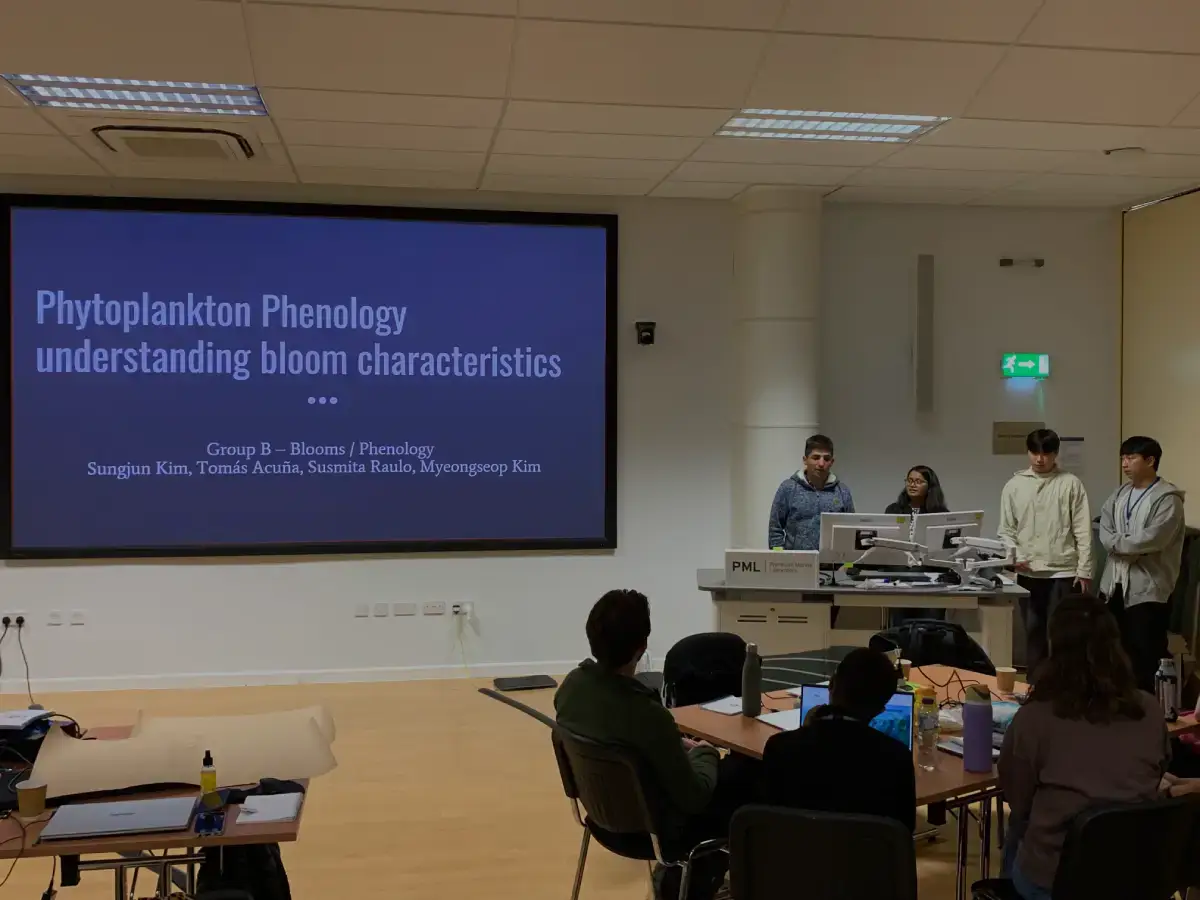
Since the symposium was designed to serve as an opportunity for training early career researchers, care was taken to ensure that many early career scientists were given the opportunity to make oral presentations. Likewise, the applications for training programme were also screened by experts and around 40 participants were selected for in-person training. Selected candidates were informed of their selection for training as well as acceptance of their abstracts for oral or poster presentations at the Trevor Platt Science Symposium.
Programme of the symposium
With oral and poster presentations selected, the programme of the symposium was prepared. Key-note and invited speakers were identified.
To accommodate all themes in the course of three days of the symposium, themes were combined into session topics: physical and biological interactions; marine optics and ocean colour; physiological ecology of marine phytoplankton; water quality and human health; and size and ecosystem structure of aquatic communities. Each session was co-chaired by a senior and an early career researcher with expertise on the respective topic.
Networking Sessions
In addition to six sessions organised around these topics, three networking sessions were also organised on the following topics:
- What worked well in capacity building and how to sustain it?
- UN-Sustainable Development Goals related to water
- Wrap up: Lessons learned and way forward
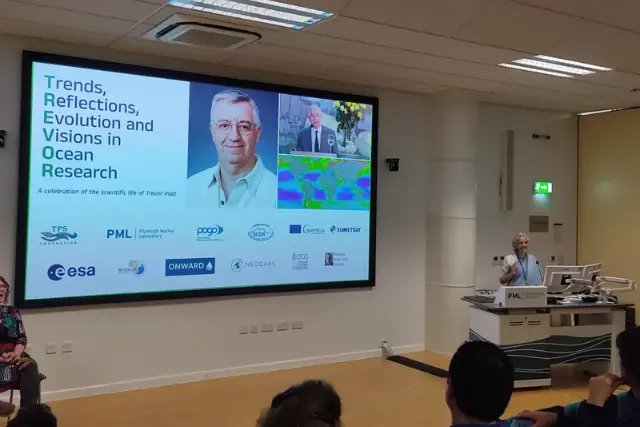
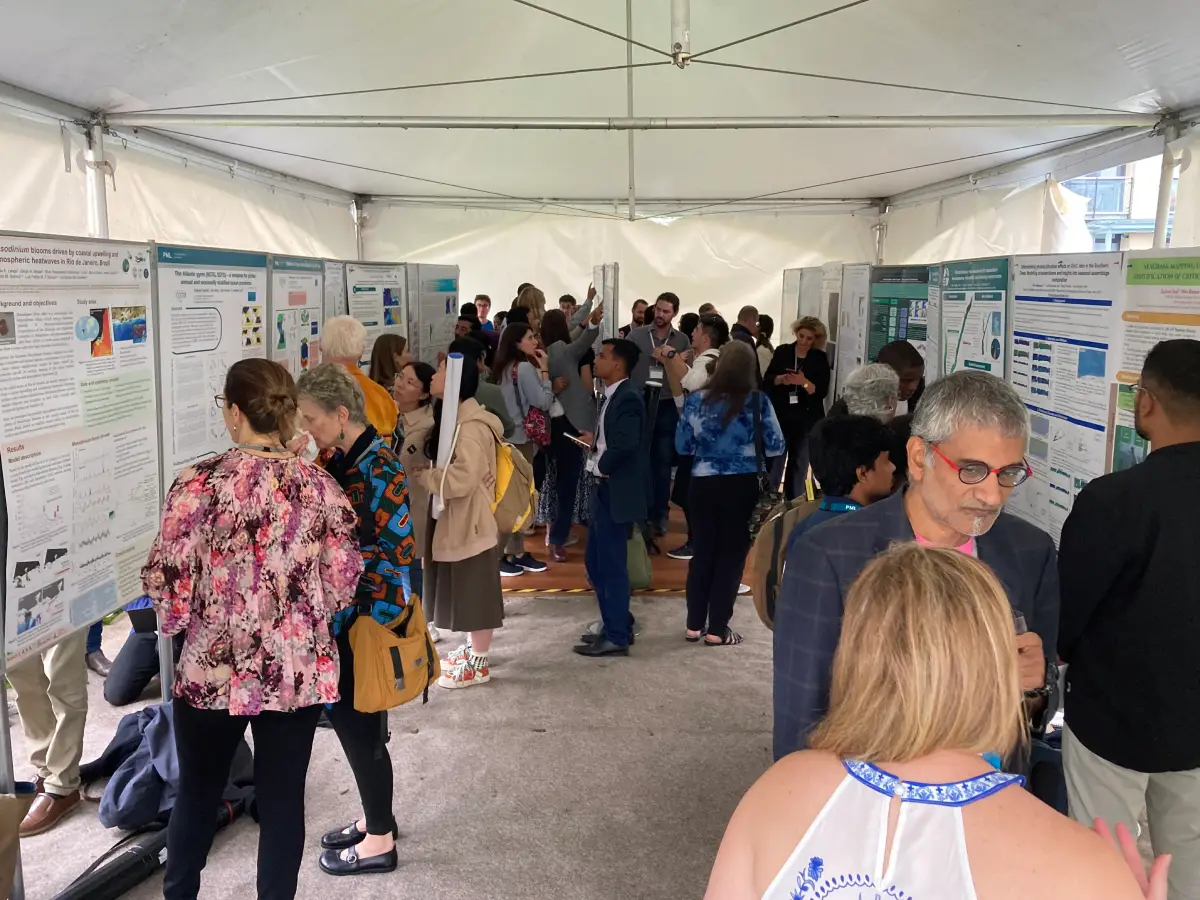
Oral and poster presentation
Poster presentations were organised into two sessions held on day 1 and day 2 of the event. 68 posters were presented on the first day, and 47 on the second day. On each day, the presenters could exchange information with the audience during coffee break.
Participation Details
The symposium was attended by a diverse audience, accounting for 140 participants from 43 countries in 5 continents (Figure 4). Participants included senior and early career researchers, and students, with maximum number of participants from the United Kingdom (28), followed by India (19). A total of 68 people represented 24 developing countries participated in the symposium. Some 42% of the attendees were students and 14% were retired scientists.
Book of abstracts
A digital book of abstracts was prepared including all the abstracts accepted for oral and poster presentations. It contained details on the authors, affiliations, session, and
day and date of presentation (for both oral and poster), and was published on the website.
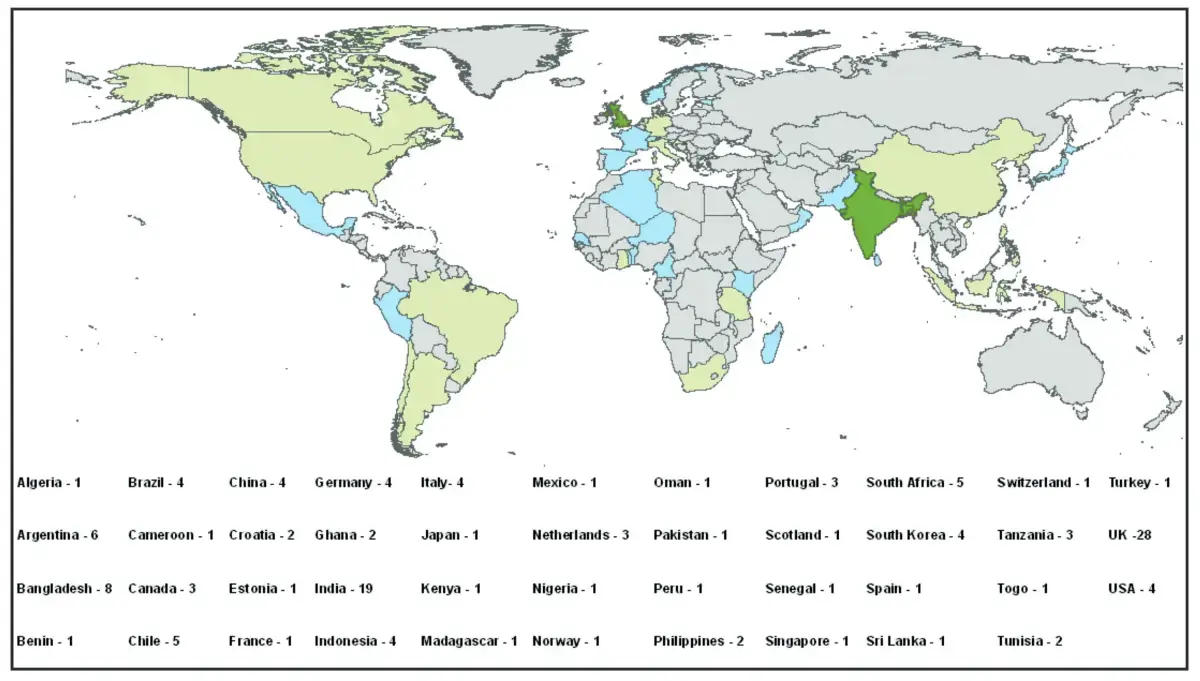
Number of participants per country represented at the TREVOR Symposium
TREVOR Symposium
The TREVOR Symposium was held from 9 to 11 August 2023 at Plymouth Marine Laboratory. Key-note lecture was delivered by Prof. Nick Owens and the invited talks were presented by Prof. Heather Bouman, Prof. Žarko Kovaè, Dr. Ana Dogliotti, Dr. Thomas Ryan-Keogh, Dr. Nandini Menon, and Dr. Angus Atkinson. Each oral session was cochaired by one senior and one early career researcher. Many of the speakers shared their research and life experiences with Prof. Trevor Platt, and emphasised how their interactions with Prof. Platt had motivated their own efforts to continue Trevor’s scientific and capacity building legacy.
Through 7 oral sessions, including an inaugural session, 35 oral presentations were made and 115 posters were exhibited over the three days. Three networking sessions were held, each involving panel discussions and participation by all attendees.
- Capacity Building: Led by Dr. Vivian Lutz, Dr. Margareth Kyewalyanga, and Dr. Sophie Carler, this session dealt with best practices in capacity-building initiatives and discussed challenges faced by participants from developing countries.
- UN-SDGs Related to Water: Led by Dr. Stefano Ferretti, Dr. Milton Kampel, and Dr. Gemma Kulk, this session explored challenges and solutions related to sustainable water management in the context of UN Sustainable Development Goals and the concept of One Health.
- Wrap-Up Session: Led by Dr. Sophie Seeyave and Dr. Raisha Lovindeer, this concluding session provided an opportunity for funding agencies to discuss take-home messages and for participants to provide feedback and suggestions for follow-up activities.
Symposium Programme
Day 1: 9 August 2023
| Session | Speaker |
|---|---|
| Inaugural Session | Co-chairs: John Field and Andréa de Lima Oliveira |
| Welcome | Icarus Allen |
| Logistics, Health and Safety | Suzanne Hawkins |
| Background and introduction | Thomas Jackson |
| Opening Keynote: The Ocean as a Common Weal | Nick Owens |
| Trevor’s contributions to science and capacity building: A Chilean perspective | Osvaldo Ulloa |
| Trevor’s contributions to science and capacity building: An Indian perspective | Grinson George |
| Oral Session 1: Physical and biological interactions | Co-chairs: Mauricio A. Noernberg and Ranith R. Pillai |
| Working with Trevor (Invited Talk) | Žarko Kovač |
| Investigating the Impact of Climate Change on Phytoplankton Phenology in the Tropical Indian Ocean | Aditi Modi |
| Primary-productivity in Upwelling Systems (PRIMUS) | Steve Groom |
| Variability of Sea Surface Temperature related to Chlorophyll-a in Simeulue Island Coastal Waters, West Sumatra Sea | Nazli Raudhati |
| Coupling between hydrography andbio-optical constituents in a shallow optically complex region using ten years of in-situ data | Arjun Adhikari |
| Oral Session 2: Marine Optics & Ocean Colour | Co-chairs: Jongkuk Choi and Priscila Kienteca Lange |
| Status of in situ and satellite observations in Latin America (Invited Talk) | Ana Ines Dogliotti |
| Optical properties of a shallow coral reef environment in French Polynesia | Pirta Palola |
| Beyond biomass: the optics of phytoplankton photophysiology | Lisl Lain |
| Capturing the seasonal to decadal variations of primary production from satellite ocean color measurements | Zhongping Lee/Shaoling Shang |
| Uncertainties in ocean colour remote sensing – How metrology can help | Frédéric Mélin |
| Networking Session 1: What worked well in capacity building and how to sustain it? | Leads: Vivian Lutz, Margareth Kyewalyanga, Sophie Carler |
Day 2: 10 August 2023
| Session | Speaker |
|---|---|
| Oral Session 3: Marine Optics & Ocean Colour | Co-chairs: Bror Jönsson and Christina Kong |
| Ocean Reflections: Over 50 years of scientific excellence in marine science (Invited Talk) | Heather A. Bouman |
| Characterizing the spatial and temporal dynamics of phytoplankton phenology in the British Columbia and Southeast Alaska coastal oceans using satellite ocean colour data | Sejal Pramlall |
| Coupling ecological concepts with an ocean-colour model: Parametrisation and forward modelling | Xuerong Sun |
| Assessment of Chlorophyll-a Remote Sensing Algorithms based on Sentinel-3B data in the eastern Algerian Coast (SW Mediterranean Sea) | Khadidja Wissal Abdallah |
| Utilizing Satellite-Derived Bathymetry of turbid water coral reefs to improve hydrodynamic models of Southern Singapore | Yochi Okta Andrawina |
| Oral Session 4: Physiological ecology of marine phytoplankton | Co-chairs: Vivian Montecino and Franck Ghomsi |
| Trends and trajectories of phytoplankton primary production and bloom phenology in the Southern Ocean | Thomas Ryan-Keogh |
| Bio-optical properties of dinoflagellate blooms from Todos Santos Bay (Baja California, México) | Adriana Gonzalez |
| Interannual variability of carbon and nutrient subduction in the Southern Ocean | Essowe Panassa |
| Metabarcoding application to Planktonic Time-Series analysis | Hannah Lloyd-Hartley |
| Driver of phytoplankton community dynamics in tropical coastal habitats | Samiul Huda |
| Oral Session 5: Water Quality and human health | Co-chairs: Seunghyun Son and Safin I P |
| Exploiting technological advances to develop resilience of coastal communities to extreme weather events (Invited Talk) | Nandini Menon |
| Microbial pollution in a tropical lake and the incidence of acute diarrheal diseases | Anas Abdulaziz |
| Assessing water quality and hydrodynamics in the central coast of Bangladesh: a Delft3D modelling approach | Eurida Liyana |
| Lab on a mini-Secchi disk | Bob Brewin |
| Water quality and health risk assessments of illegal gold mining-impacted estuaries in Ghana | Charles Abimbola Fasey |
| Networking Session 2: UN-SDGs related to water | Leads: Stefano Ferretti (Invited), Milton Kampel, Gemma Kulk |
| Poster Session 2 | - |
Day 3: 11 August 2023
| Session | Speaker |
|---|---|
| Oral Session 6: Size and ecosystem structure of aquatic communities | Co-chairs: Vanda Brotas and Rodrigo Hernández-Moresino |
| Pelagic size spectra: history, limitations, and some diverse applications (Invited Talk) | Angus Atkinson |
| Integration of socio-ecological data for MPA zoning: An example from the south-east coast of Bangladesh | Subrata Sarker |
| Machine Learning techniques for forecasting the effect of Climate Change and Anthropogenic pressures on Coastal wetlands (Ichkeul Lake, Ramsar Site) | Sabrine Sahbani |
| Satellite-guided individual based modelling for spatial distribution of fish: Atlantic mackerel as an example | Shovonlal Roy |
| Pelagic respiration and biomass size spectra in the Humboldt Current System | Renato Quiñones |
| Networking Session 3: Wrap up: Lessons learned and way forward | Leads: Shubha Sathyendranath, Raisha Lovindeer, Sophie Seeyave |
| Trevor Platt Science Foundation Annual Meeting (TPSF members only) |
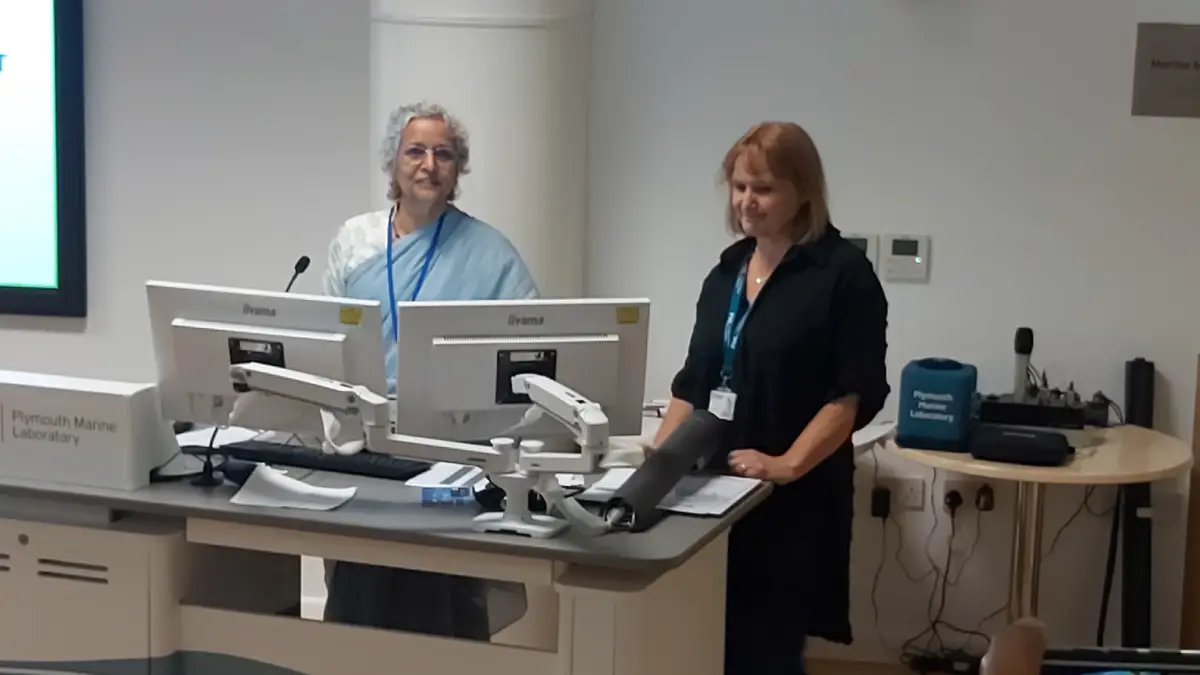
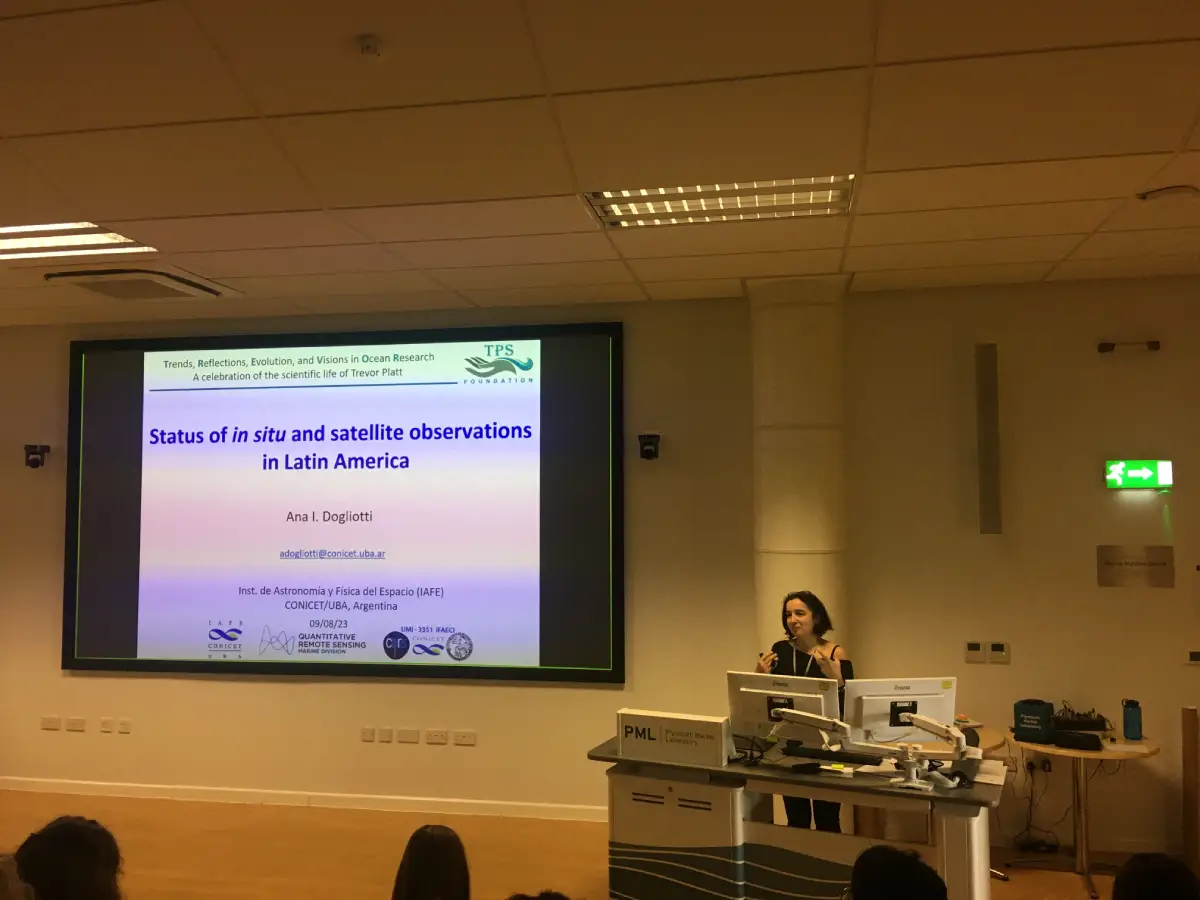
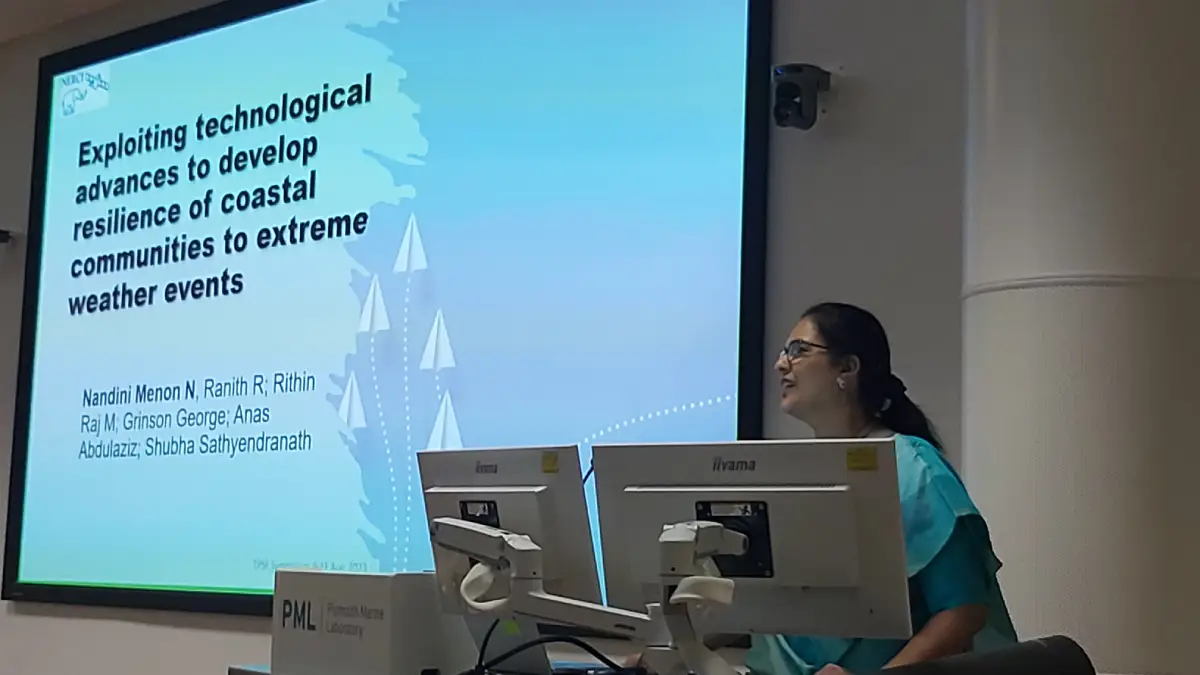
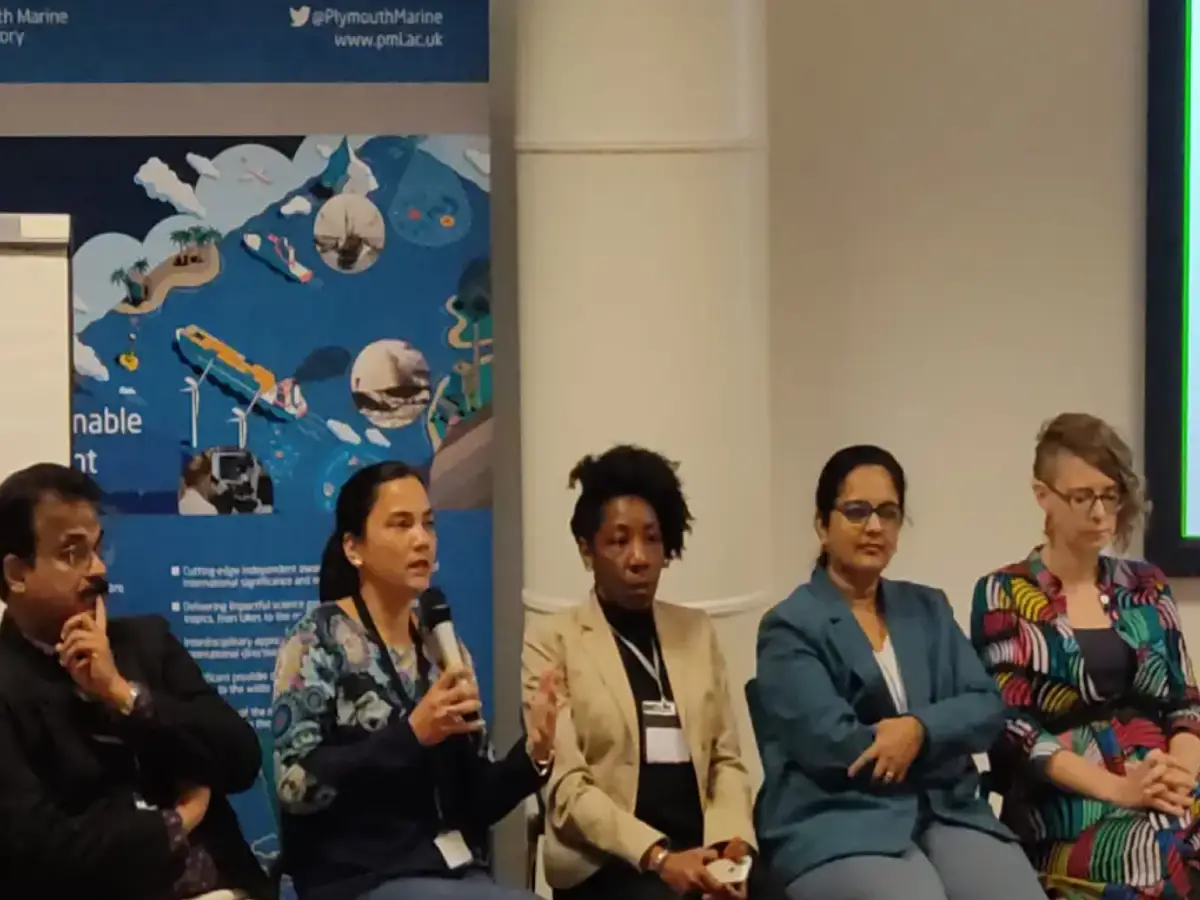
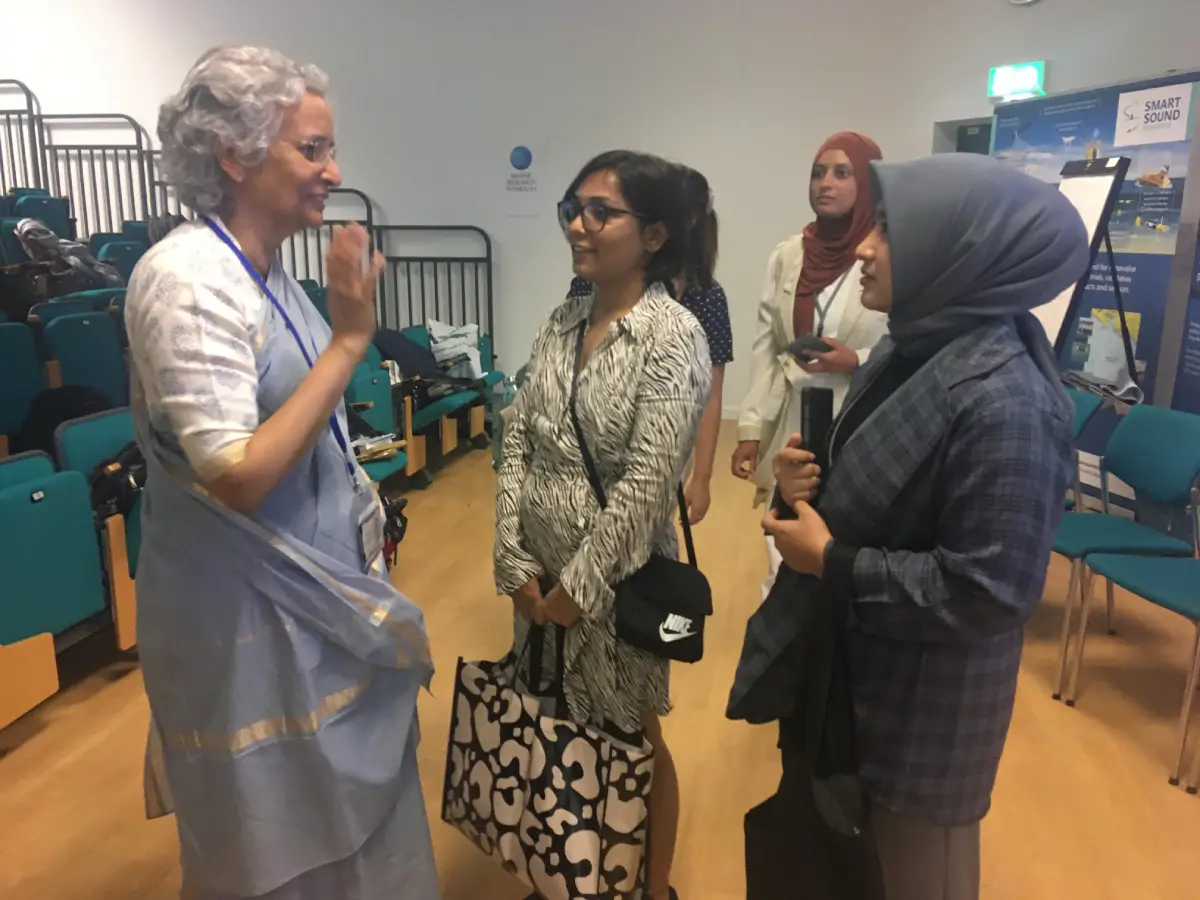
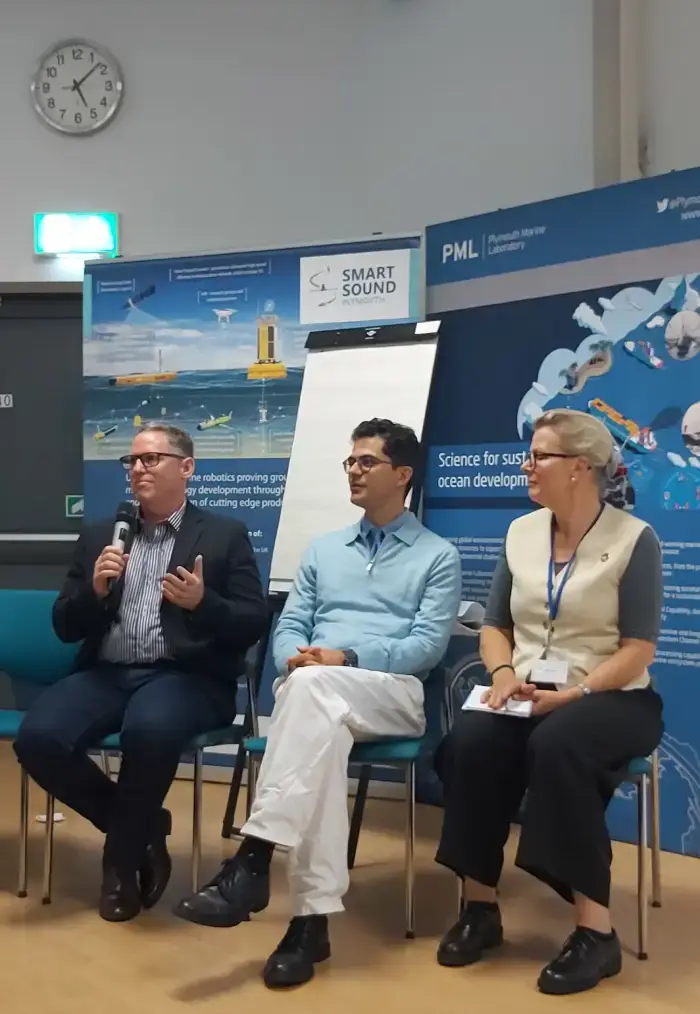
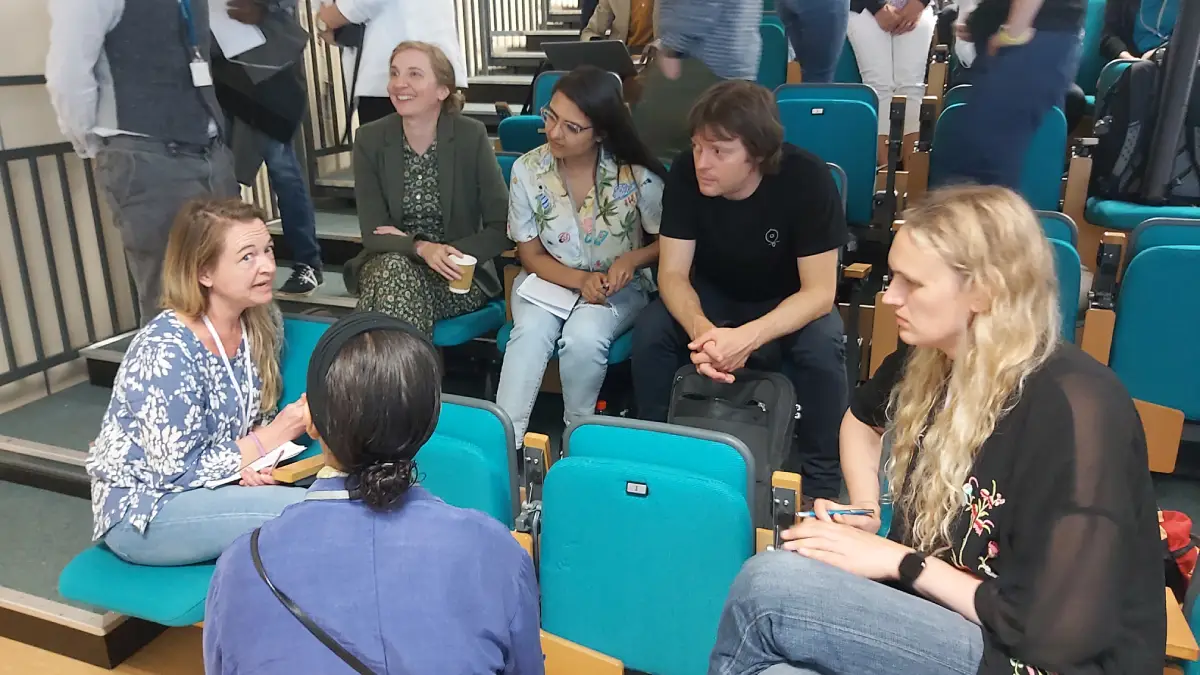
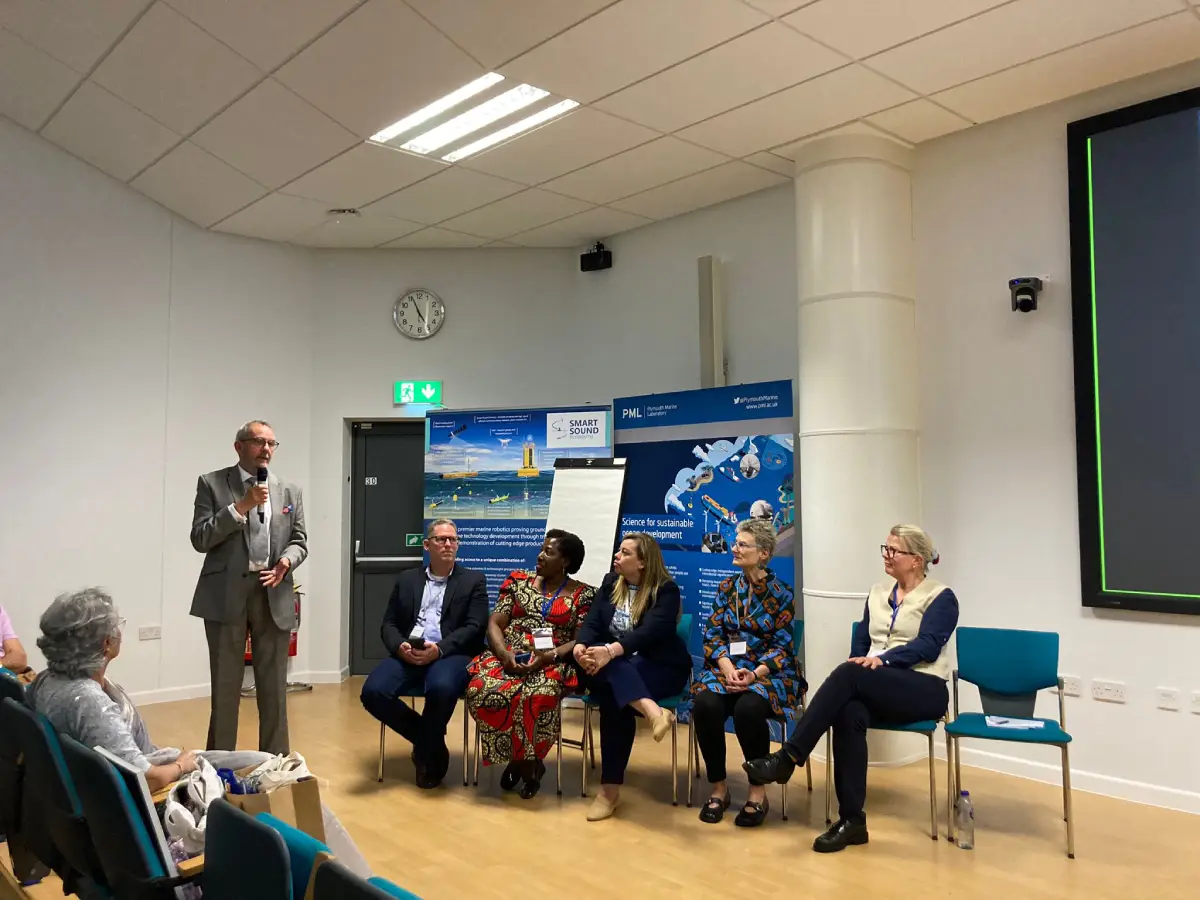
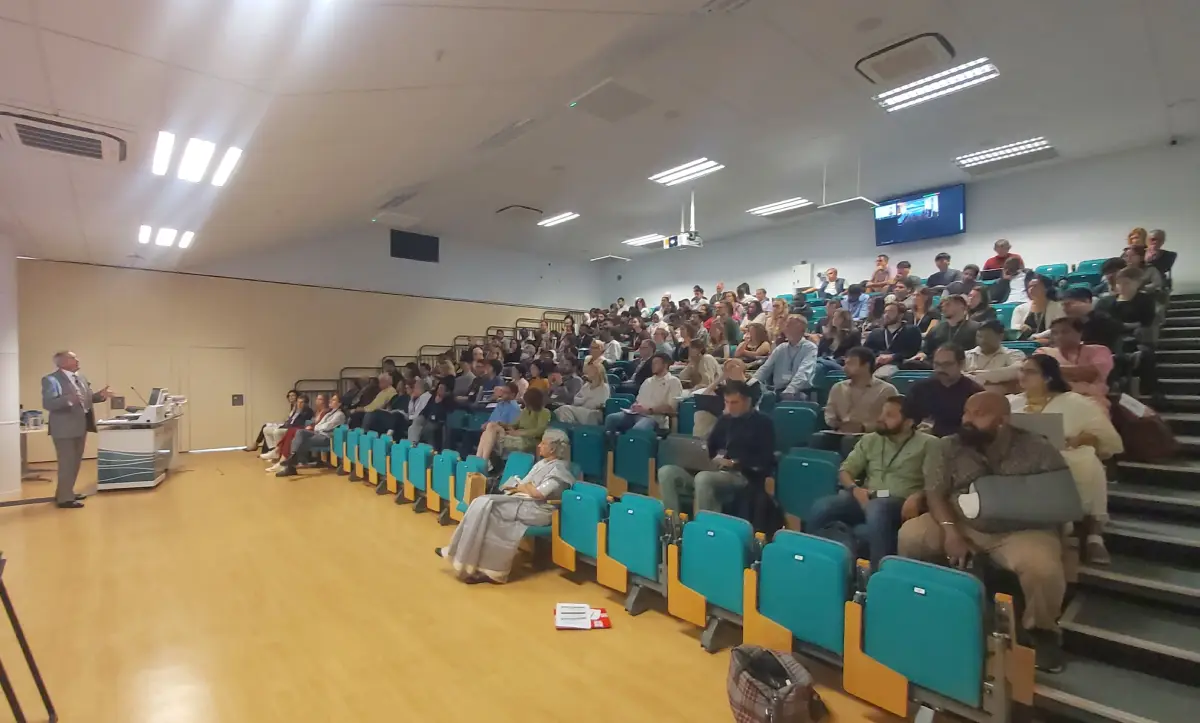
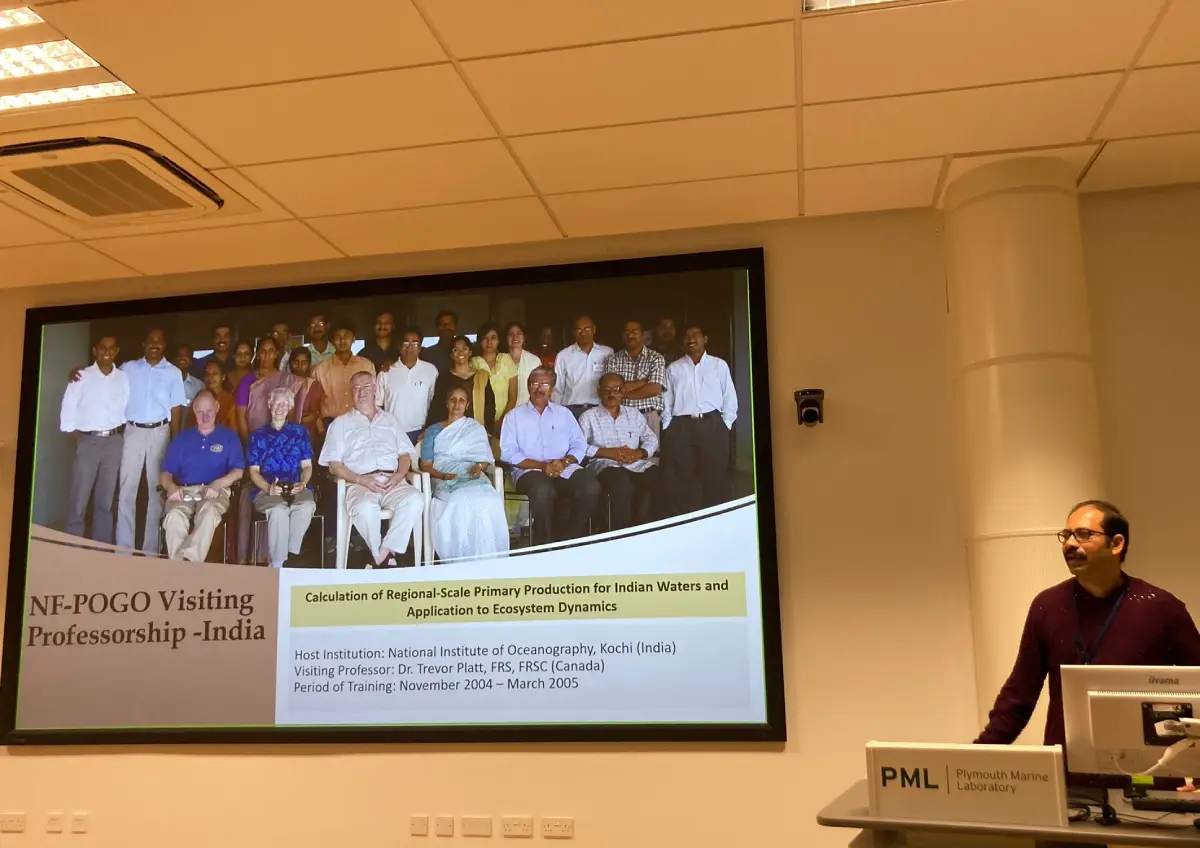
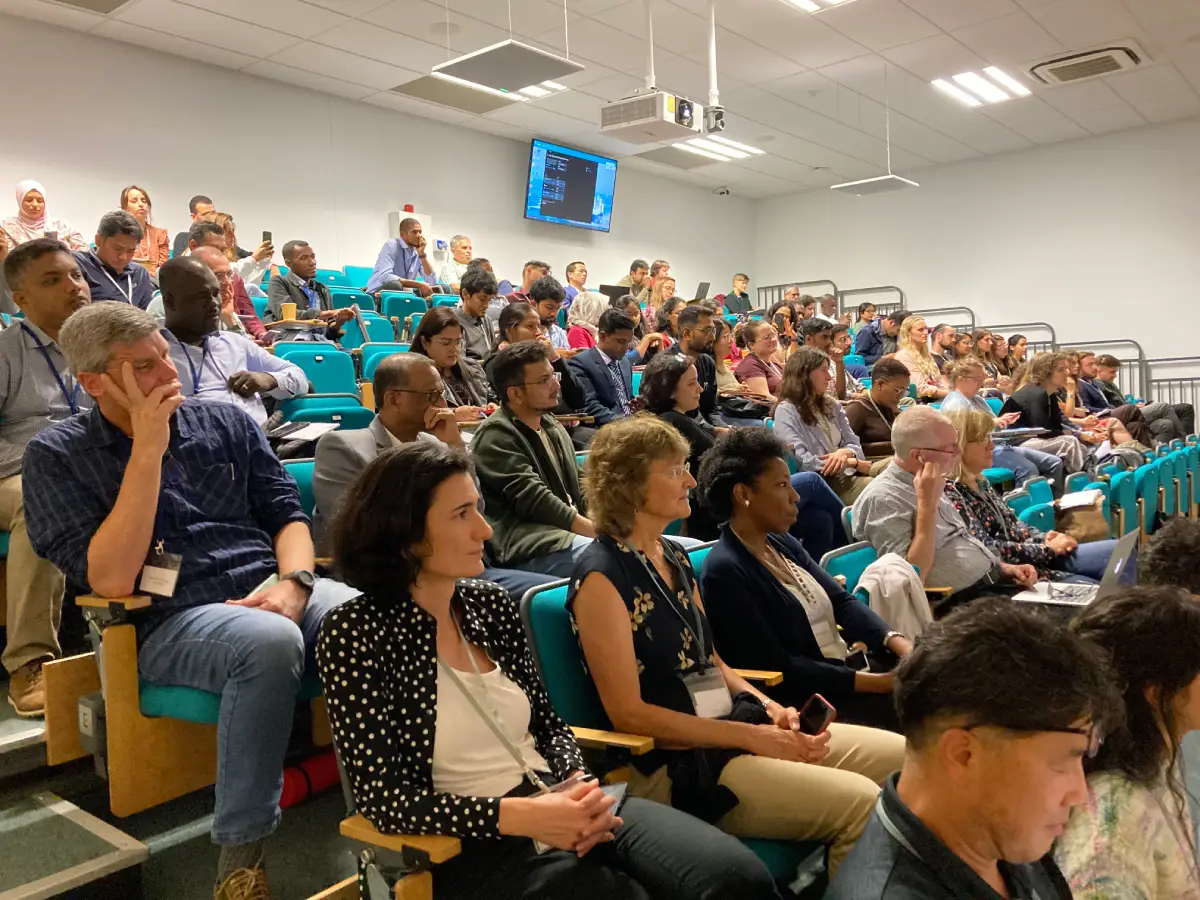
Glimpses of the TREVOR Symposium
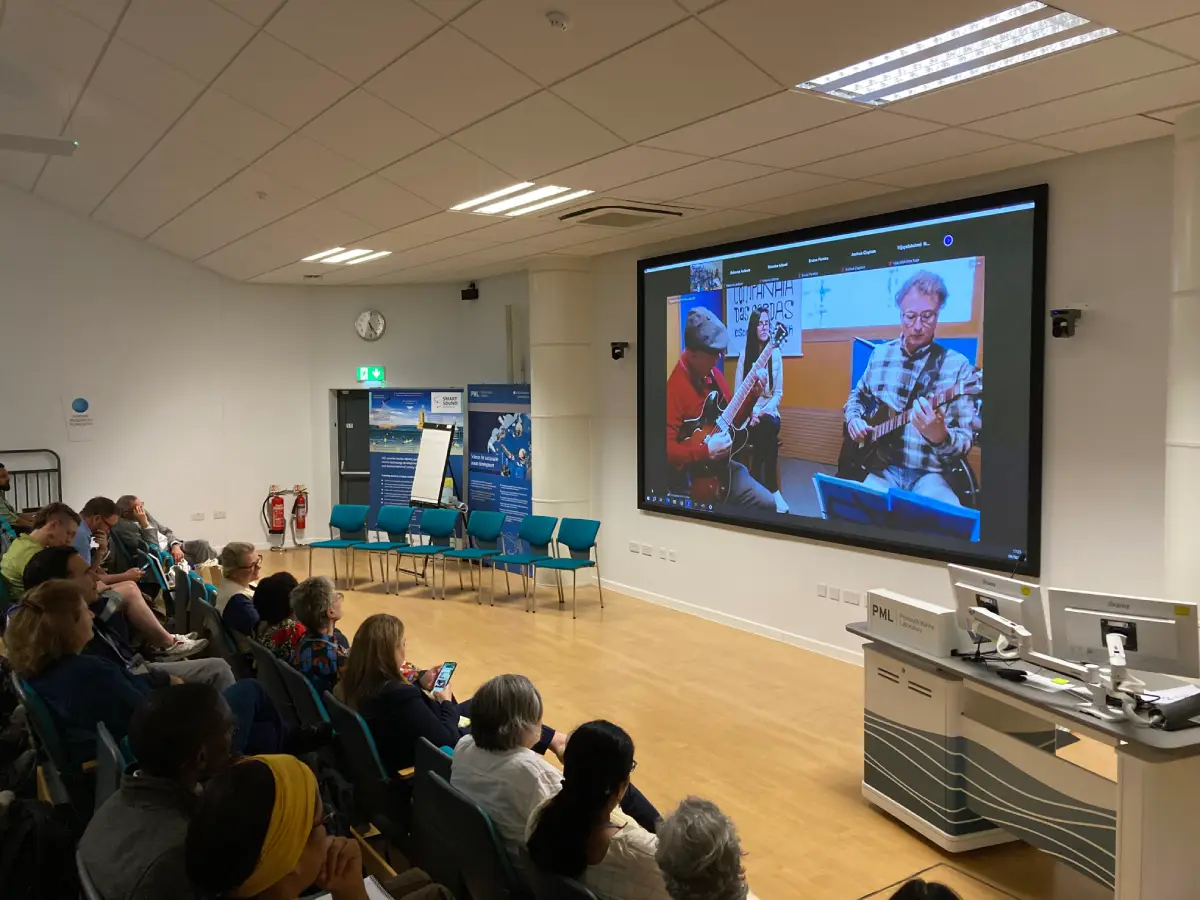
In memory of Trevor Platt’s passion for music, Celso Leal, music teacher, along with his colleagues and students from Companhia das Cordas, Brazil entertained the participants with an online guitar concert
Award
TPSF Lifetime Achievement Award for Capacity Building
Dr. Venetia Stuart, former Project Scientist of the International Ocean Colour Coordinating Group (IOCCG) was awarded the first Trevor Platt Lifetime Achievement Award for her role in capacity building in ocean colour science. The award was presented by Prof. John Field from South Africa, who had been Venetia’s PhD thesis supervisor. The award was a bespoke glass art work, depicting the various hues that emerge when light falls on water and phytoplankton.
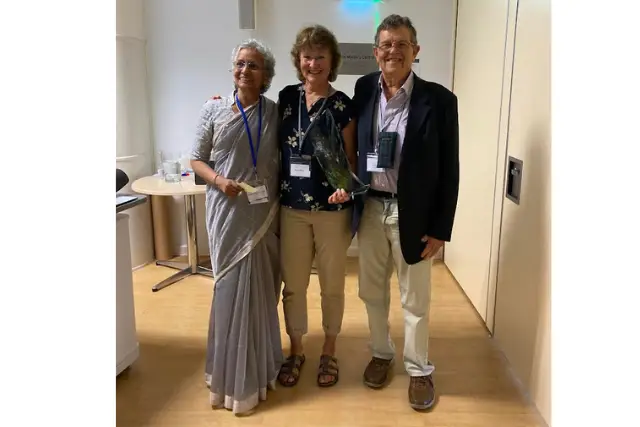
Dr Venetia Stuart, sided by Dr Shubha Sathyendranath and Prof John Field, received the first Trevor Platt Lifetime Achievement Award for capacity building.
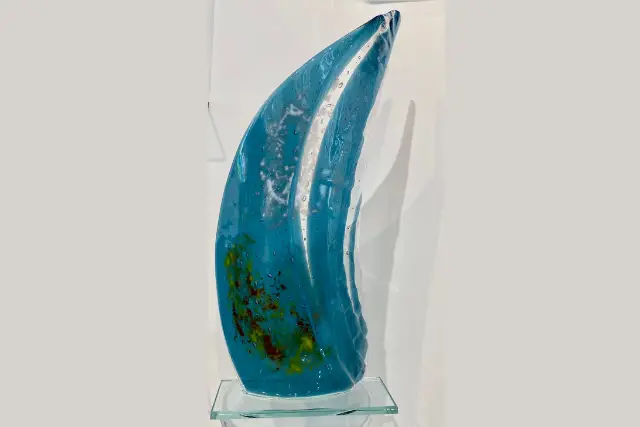
The award
Symposium 2023
Feedback from Participant
A real time feedback survey was conducted during the last session of the Symposium, chaired by Dr. Raisha Lovindeer and Dr Sophie Seeyave. The responses showed that 72% of the participants flew long distance to participate in the symposium. Some 97% of the participants
responded that they were satisfied or highly satisfied with the event with a high demand to make the symposium an annual or biennial event.
The aspects pointed out as the most and least valuable during the symposium were the networking and poster sessions, respectively. The first was highly praised as a venue for real discussion that included all participants, while the latter was pointed as the least effective due to the limited physical space reducing effective interaction among participants.
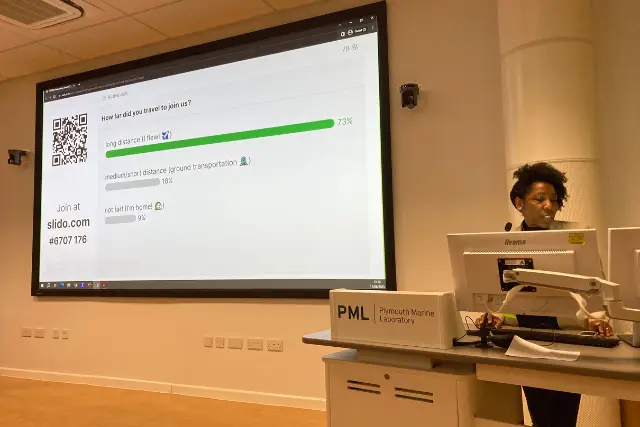
Raisha Lovindeer conducting the slido poll to get feedback on the symposium
Plans for the next TREVOR Symposium
The Trevor Platt Science Foundation is considering the possibility of organising a similar event three years from now, in response to the feedback from the participants.
Symposium 2023
Training Course
Background
The organisation committee decided that an international training course conducted in conjunction with the symposium would help maximise the benefits from the symposium for
early career researchers. Synchronised with themes of the symposium, an international hands on training on satellite remote sensing was proposed and agreed on, as a 2-day event before the symposium. As only limited people could be accommodated for an in-person training, an online training was also proposed to teach in detail the principles and methodologies of satellite remote sensing applications.
Approach
The training consisted of an online as well as an in-person component. The online component was a made up of 17 webinars, organised into four modules on the following topics:
- General Introduction
- Water quality and human health
- Ocean ecosystems and climate
- Data analysis and processing tools
Each module was comprised of 4 to 5 lecture webinars. There were no restrictions on registering
and attending the online training.
The in-person training component ‘Satellite-based Tools for Investigating Aquatic Ecosystems’ focused more on the methodology – extraction and use of satellite data and their application in research. The number of participants was limited to around 40 taking into account the facilities available. The trainees selected by an expert committee attended the in-person
training, during which they were also given an opportunity to work on, and plan their research around a topic of their interest using satellite tools and were invited to present their findings
and plans.
Objectives
- To provide a forum for early career scientists and students to learn the fundamentals of, and recent developments in, ‘Satellite based tools for investigating aquatic ecosystems’
- To assemble renowned educators from the world, to provide the lectures and the practical sessions
Trainees were from 23 countries, of which 12 were developing countries.
27 out of the 44 trainees were sponsored. The in-person training was conducted as per programme schedule on 7 and 8 August 2023 at Plymouth Marine Laboratory. The offline training was also focused on five themes – ocean colour data access, processing and interpretation; primary production; water quality and human health data tools; machine learning and EO; group work.
Sponsoring Partners
Various sponsoring partners supported the participation of 41 young researchers selected for training (Table 2). They were taught by 8 trainers from EUMETSAT, PML, University of Exeter and 3 assistant trainers from NERCI (India), CMFRI (India) and a former PML scientist. The expenses of many of the trainers were also met by the sponsoring agencies.
The online training was organised with the dedicated and highly efficient support of the ESA Conference Support Team and the ESA Capacity Building cell, who provided full logistical support through interactive Webex webinar set up. The Webex platform for screening the lectures was provided by ESA, who served as the hosts. Able organisation and logistical support were provided by Sabrina Lodadio, Ulla Vayrynen, Irene Renis, Francesco Sarti and Martin Fabrizio.
Organisation of Online Training
The online training course ‘Satellite based tools for investigating aquatic ecosystems’ included 17 webinars around four themes as noted above. Webinars were organised with one lecture per week, from 5 April to 26 July, 2023. Renowned scientists, many of who were former trainees or students of Trevor Platt, volunteered to speak on their topics of expertise. Each event was of 2 hours duration – one hour of lecture, followed by one hour of panel discussion responding to questions and comments from the participants. The number of attendees ranged from more 400 for the general introductory sessions to 160-350 for the specialised lectures. The attendance did not drop of significantly during the Q&A session. Total watch time online for the webinars was approximately 8000 hours.
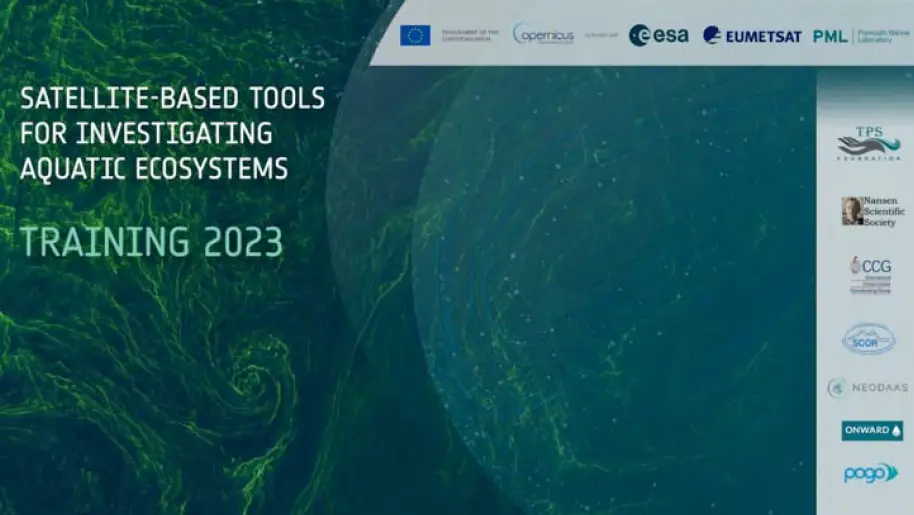
Backdrop for the online training course
Modules of the online training programme
| Lecture Title | Speaker |
|---|---|
| Introduction To: Remote Sensing of the Oceans | Dr Lauren Biermann |
| Introduction To: Ocean Colour | Dr Ana Dogliotti |
| Introduction To: Data Repositories and Access | Dr Ben Loveday |
| Introduction To: Remote Sensing in Coastal Waters | Dr Seunghyun Son |
| Water Quality and Human Health: The role of Earth observation in mapping risk from water-borne diseases | Dr Shubha Sathyendranath |
| Water Quality and Human Health: The role of Earth observation for water quality and flood mapping | Dr Gemma Kulk |
| Water Quality and Human Health: User engagement and citizen science for water quality | Dr Grinson George |
| Water Quality and Human Health: Applied Geotechnologie for Ocean and Human Health | Dr Milton Kampel |
| Ocean Ecosystems and Climate: Ocean Colour and Climate | Dr Thomas Jackson |
| Ocean Ecosystems and Climate:Primary Production | Dr Bob Brewin |
| Ocean Ecosystems and Climate: Phytoplankton Community Structure and the Carbon Cycle | Dr Heather Bouman |
| Ocean Ecosystems and Climate: Indicators of Ecosystem Status | Dr Dionysios Raitsos |
| Data processing and analysis tools: SNAP | Dr Ana Ruescas |
| Data processing: Ocean Colour and Earth Observation with Julia | Dr Gael Forget |
| Data processing and analysis tools: SeaDAS | Aynur Abdurazik & Daniel Knowles |
| Data processing and analysis tools: Artificial Intelligence | Dr Dave Moffa |
| Data processing and analysis tools: Python | Dr Bror Jönsson |
Organisation of in-person training
The candidates for in-person training were selected based on the nature of their ongoing work and their expertise in satellite remote sensing. Applicants were required to submit a prescribed application form along with an abstract to the TPSF Symposium as the first author, along with a statement of interest. From the shortlisted candidates, the various sponsoring agencies selected trainees based on their own criteria.
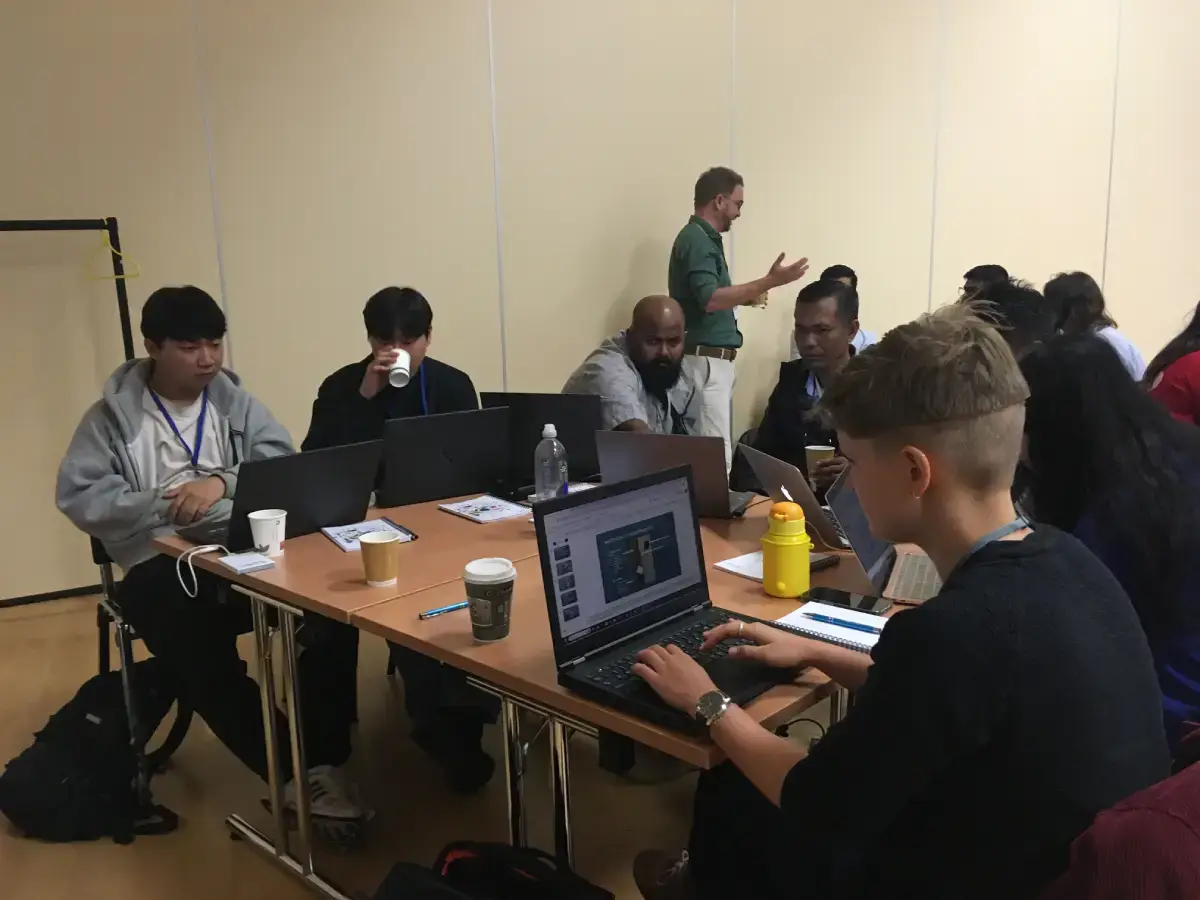
Detailed programme schedule of the in-person training
Day 1 (07/08): Monday
| Session | Speaker |
|---|---|
| Registration | - |
| Welcome, safety briefing etc and training overview | Thomas Jackson |
| TOPIC 1: Lecture: Ocean Colour (data access, processing and interpretation) | Hayley Evers King + Ben Loveday |
| TOPIC 1: Practical Exercises with Ocean Colour | Hayley Evers King + Ben Loveday |
| TOPIC 2: Lecture: Water quality and human health data tools | Gemma Kulk |
| TOPIC 2: Practical exercises on Water quality and human health data | Gemma Kulk |
| Q/A, open discussion | - |
| Research Question Discussion session. Group project scoping and initiation. | - |
Day 2 (08/08): Tuesday
| Session | Speaker |
|---|---|
| TOPIC 3 Lecture: Ocean biogeochemical cycles and Primary Production | Bob Brewin |
| TOPIC 3: Modelling primary production in Python and Jupyter notebook | Bob Brewin |
| TOPIC 4 Lecture: AI | David Moffat |
| TOPIC 4 exercises: AI | David Moffat |
| Q/A, open discussion | - |
| Group project work (continued from yesterday). | - |
| 5 minute group presentations (9-10 presentations) | - |
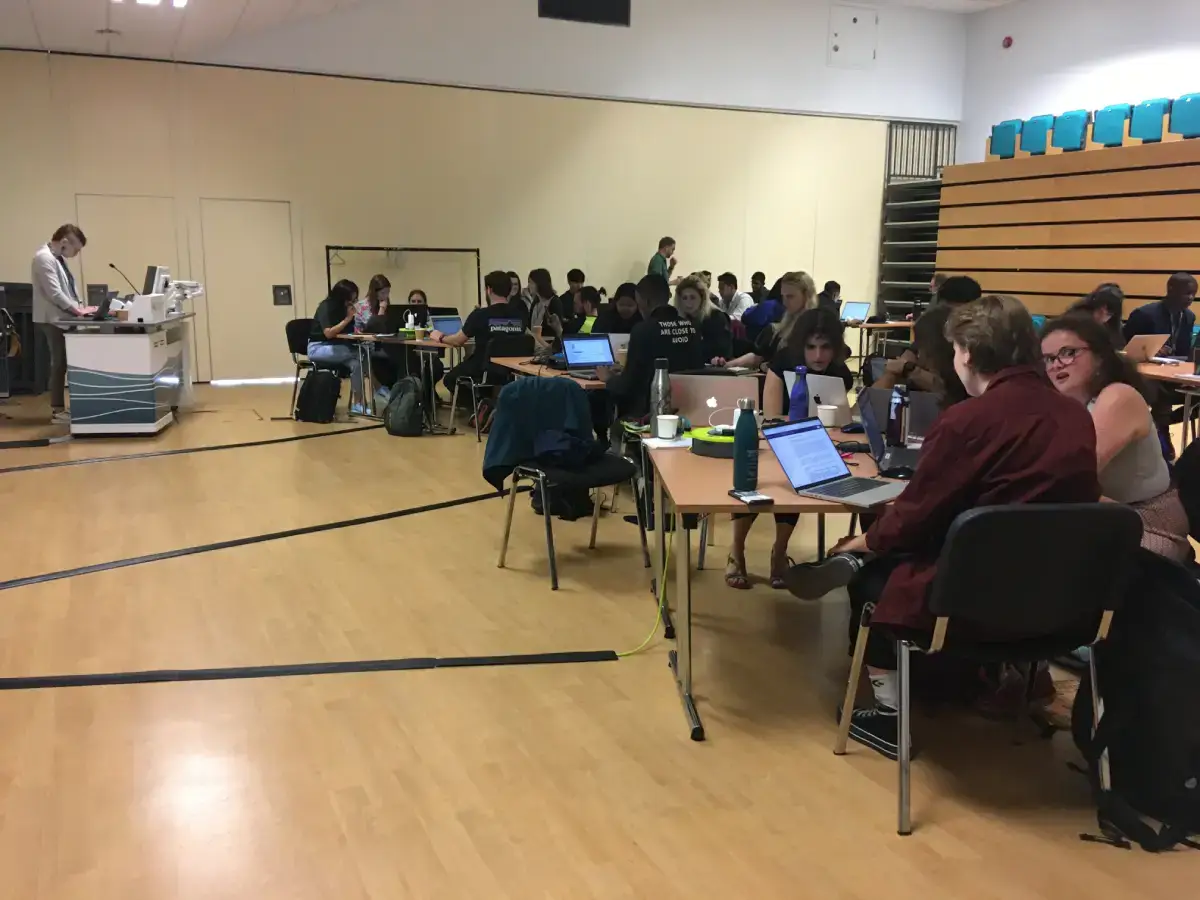
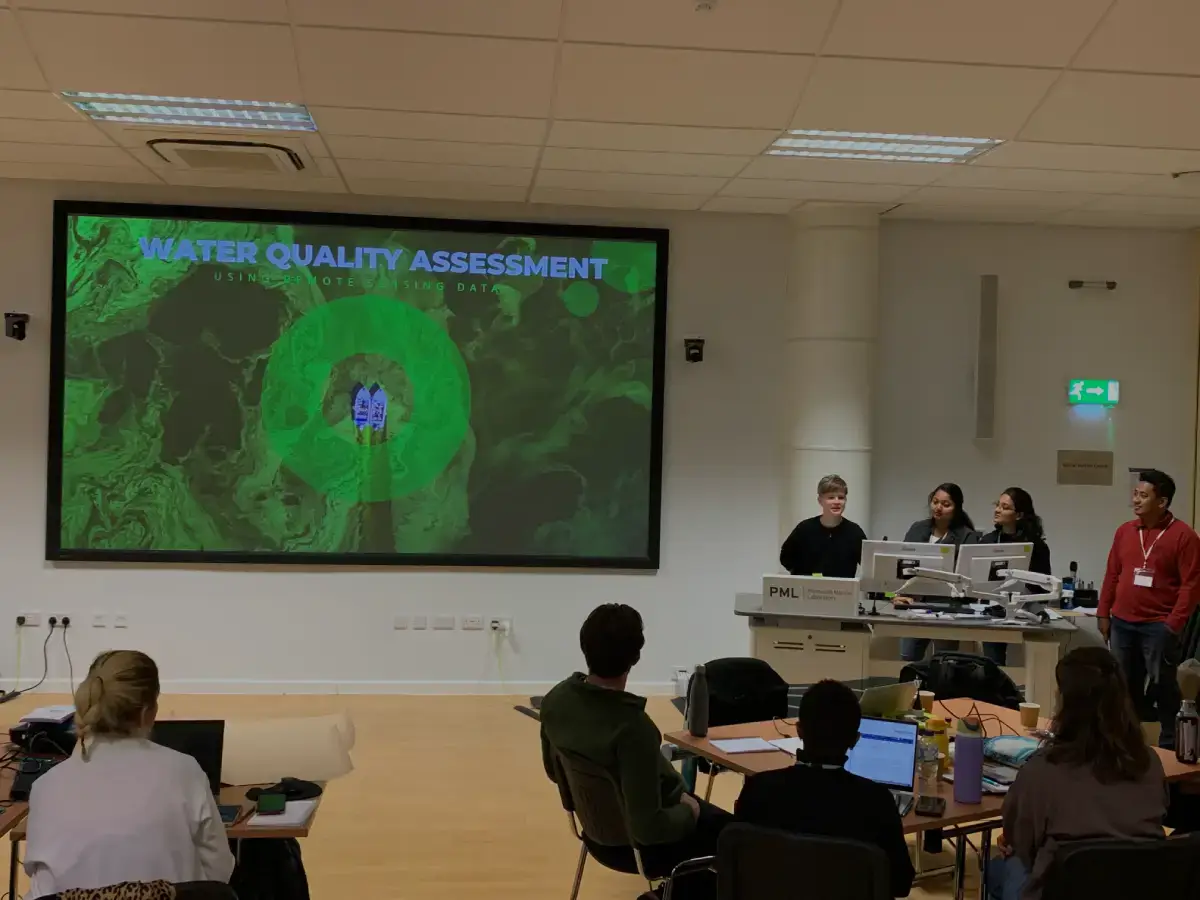
Glimpses of the in-person training and participant presentations
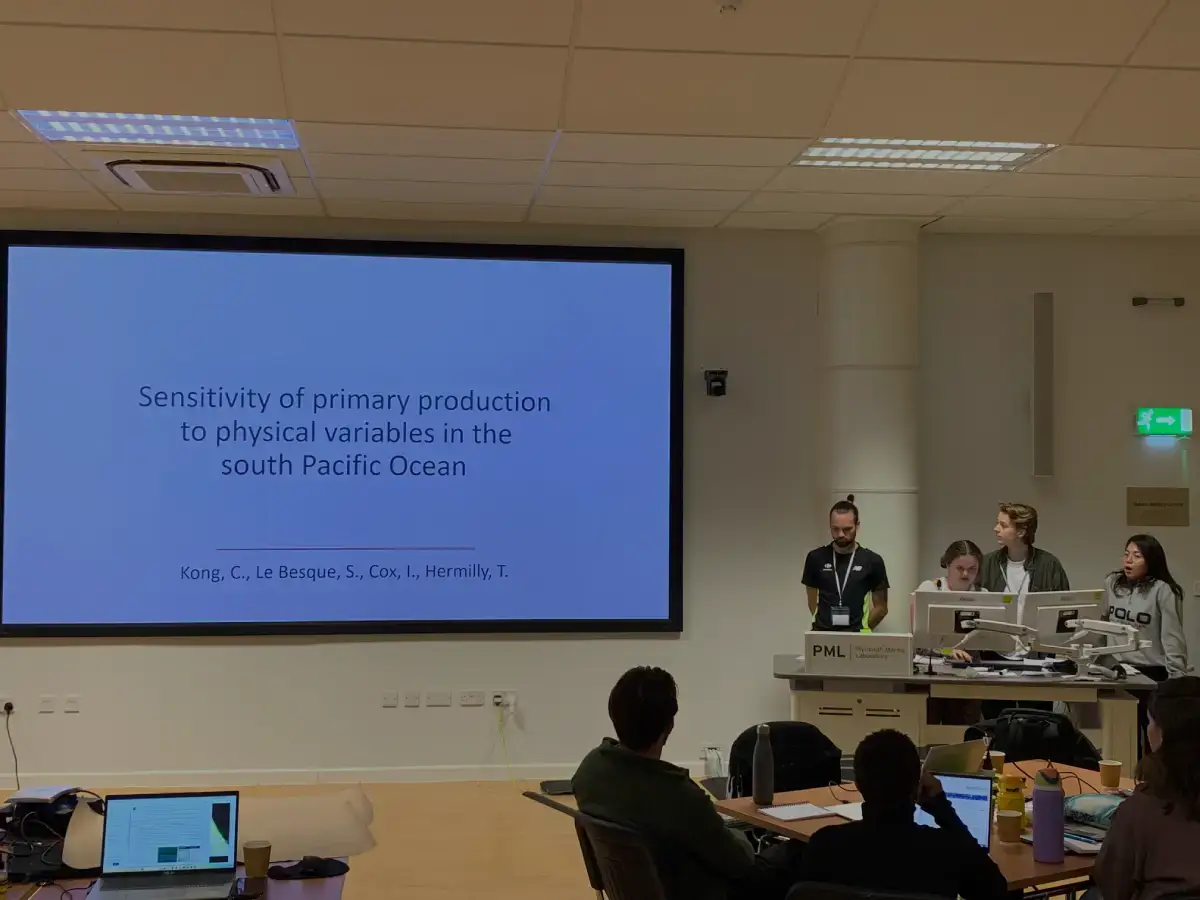
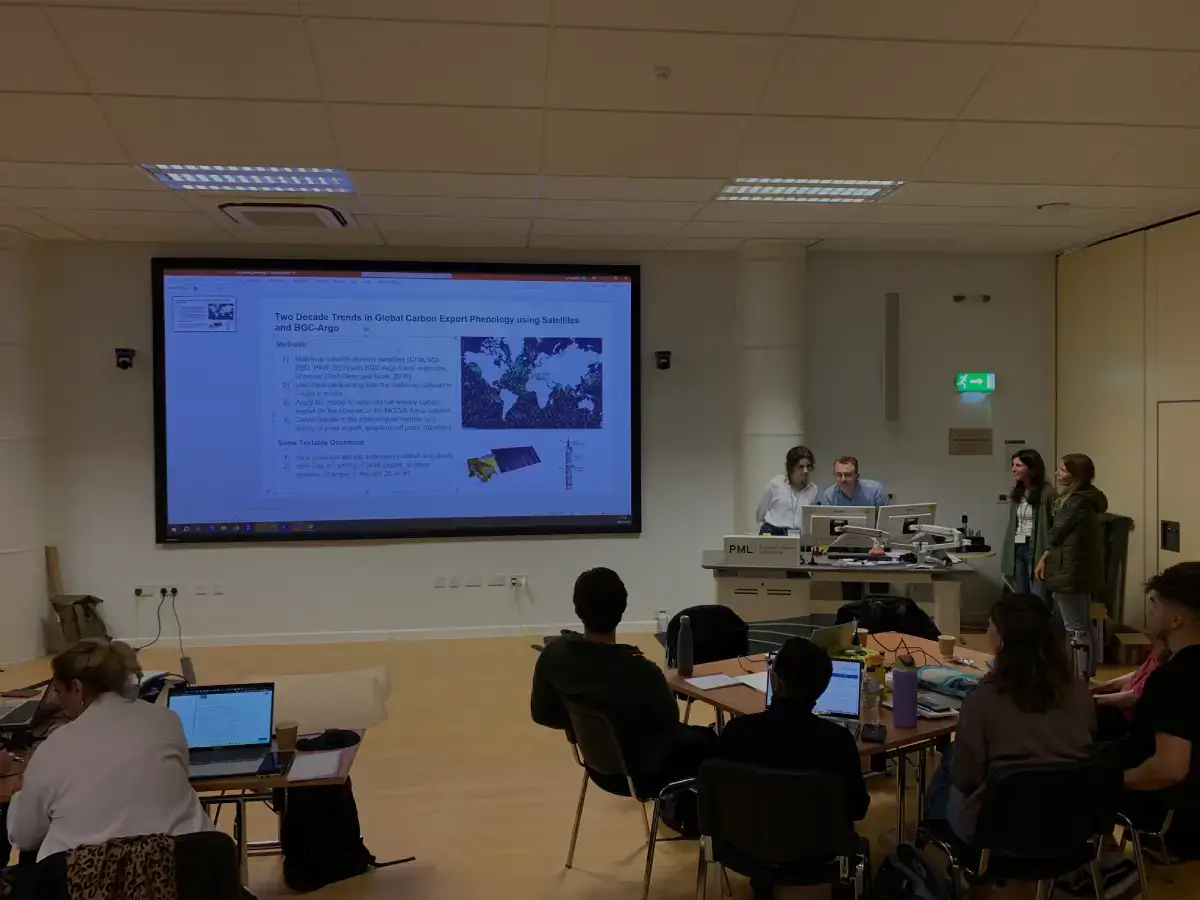
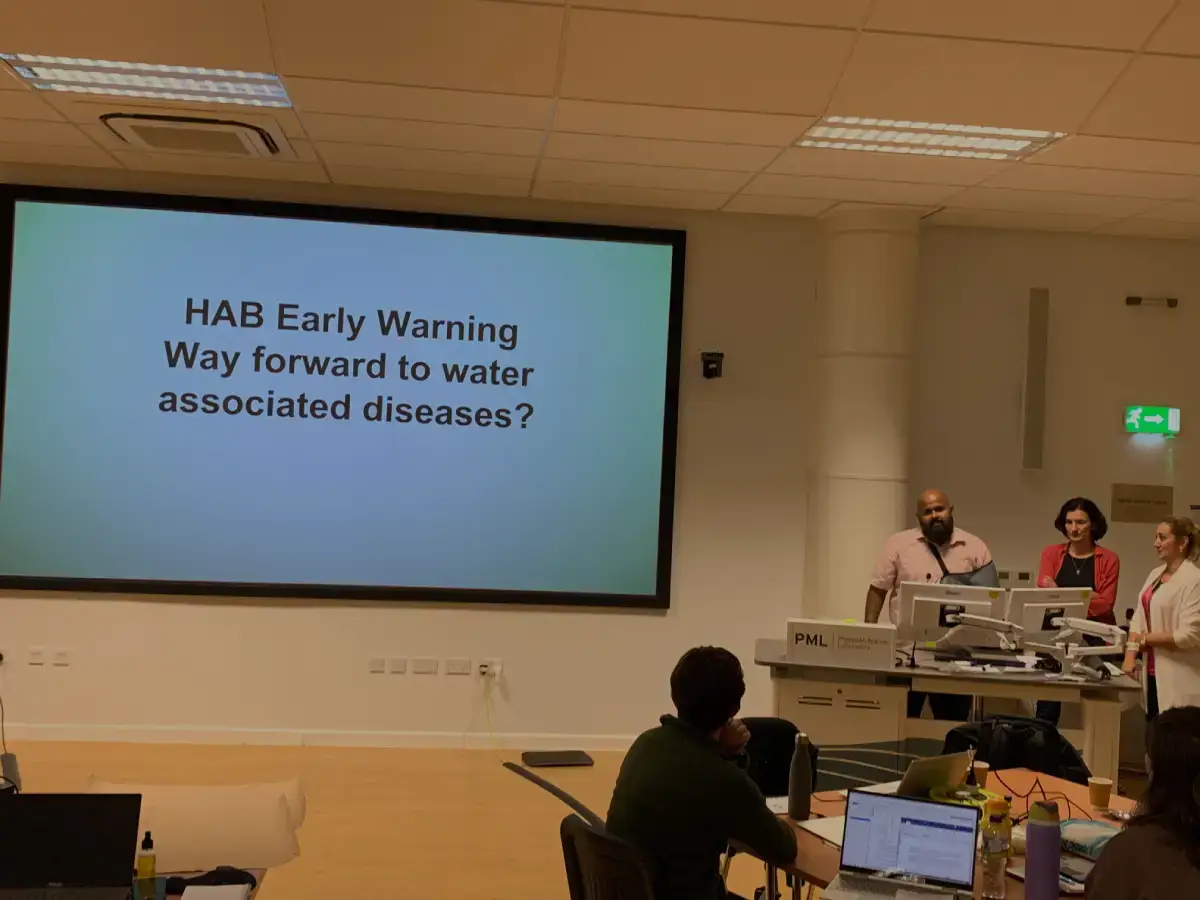
Feedback from Participants
The feedback form was organised on a scale of 0-5. The participants gave high average score for both content topics (4.73/5) and teaching (4.65/5). The general opinion was that the online training was beneficial to understand the basics of a broad range of topics that are
essential for aquatic research using satellite data. The chat box during the online course was well managed. However, participants expressed the need for more practical lectures with more step-by-step usage of the different software available for working with remote sensing
products. All appreciated the closeness of TPSF members and organisers and the cordial behaviour of organisers toward the participants, which all was evidently nurtured by Trevor Platt.
Acknowledgements
In addition to our sponsoring partners, the TREVOR Symposium and Training Course organising committee would like to thank the following people for their unstinting contributions and dedication to various aspects of the preparation of this event:
- Suzanne Hawkins, Meryl Hopper, Christina Devereux and Cathy Woods (Science Support team, PML), and Justine Dolling (Finance team, PML) who helped with travel and accommodation as well as financial support for the participants funded through PML’s projects and TPSF as well as logistical support and house keeping;
- Stephanie Raw and Louise Baker from PML who helped with reception and logistics; Lee Merchant and his team (PML) for logistical support and house keeping;
- Mrs. Lydia Nelson (TPSF, India) who managed the correspondence with the symposium participants and trainees;
- Laura Ruffoni and Karolina Iwaniak (POGO Secretariat), who organised travel and financial support for many participants; and
- Sabrina Lodadio, Irene Renis, Ulla Vayrynen, Martin Phillipsen, Fabrizio Pera, and Francesco Sarti from ESA, who managed the Webex platform for the pre-symposium online training, and in many other numerous ways.

